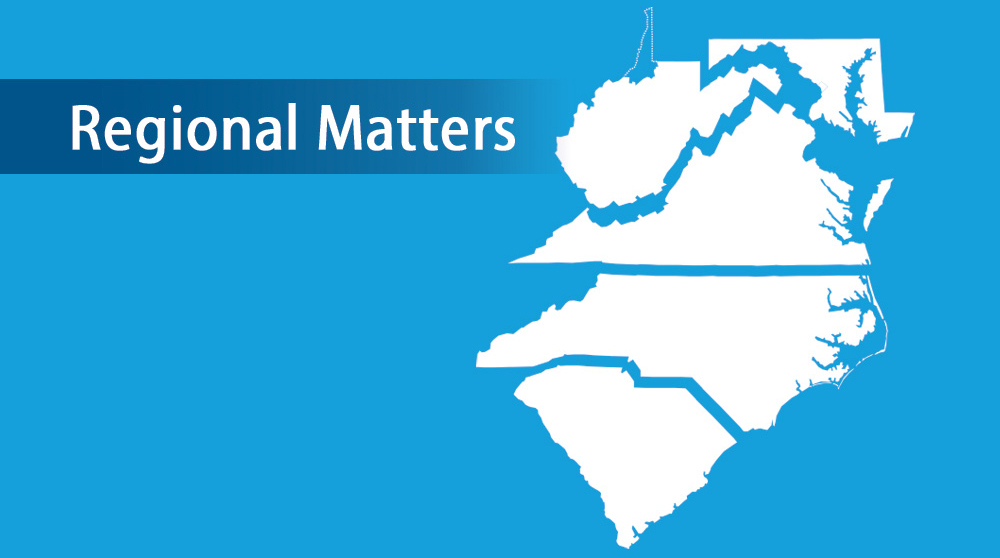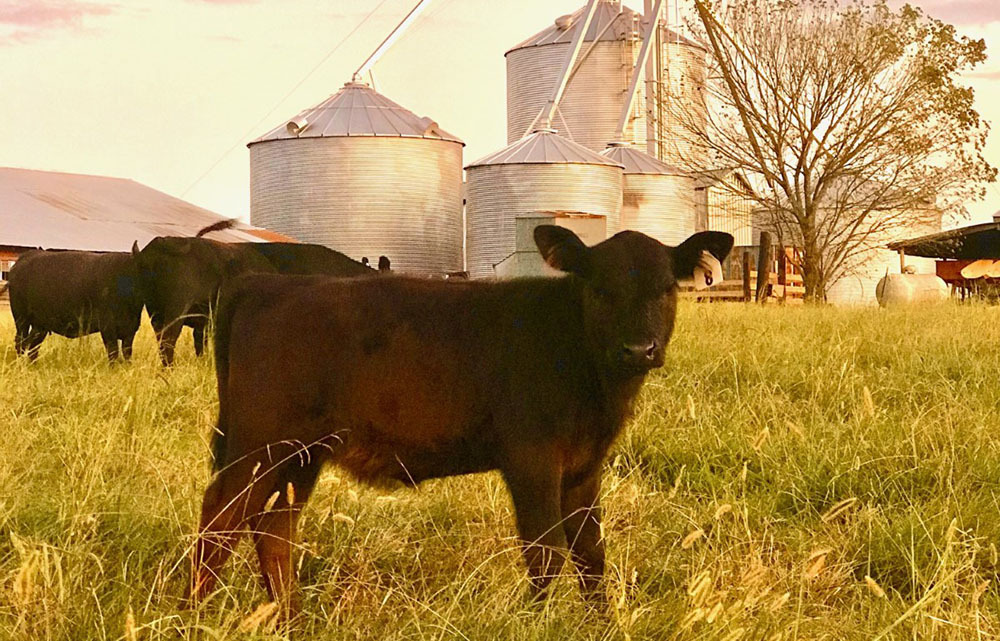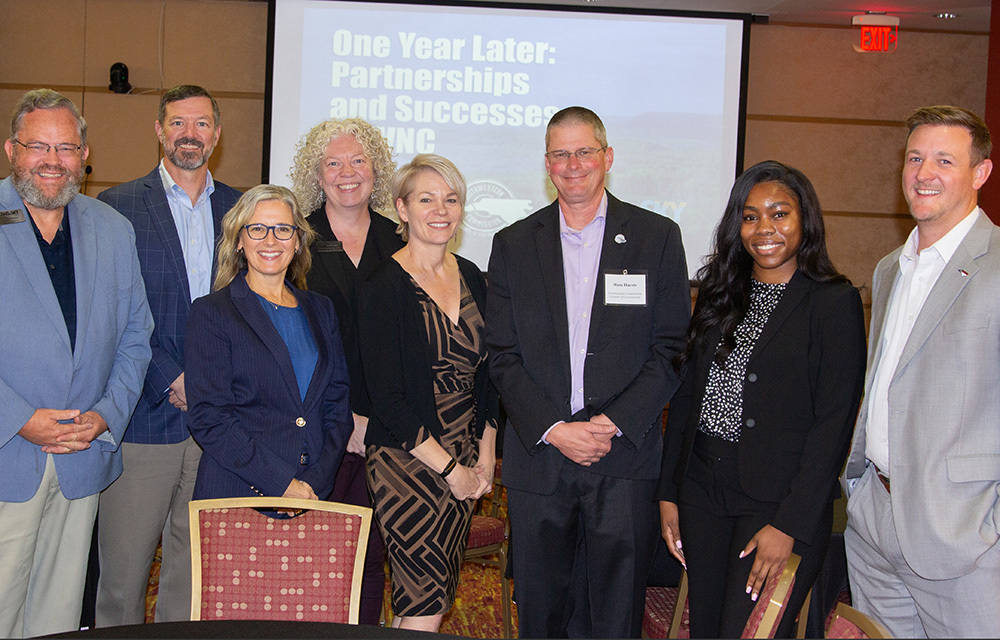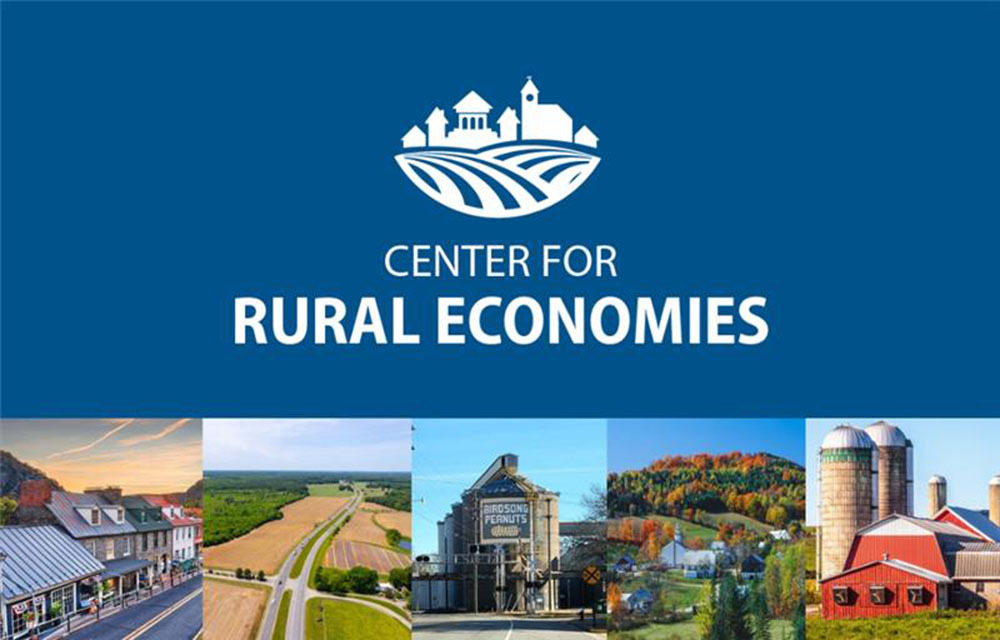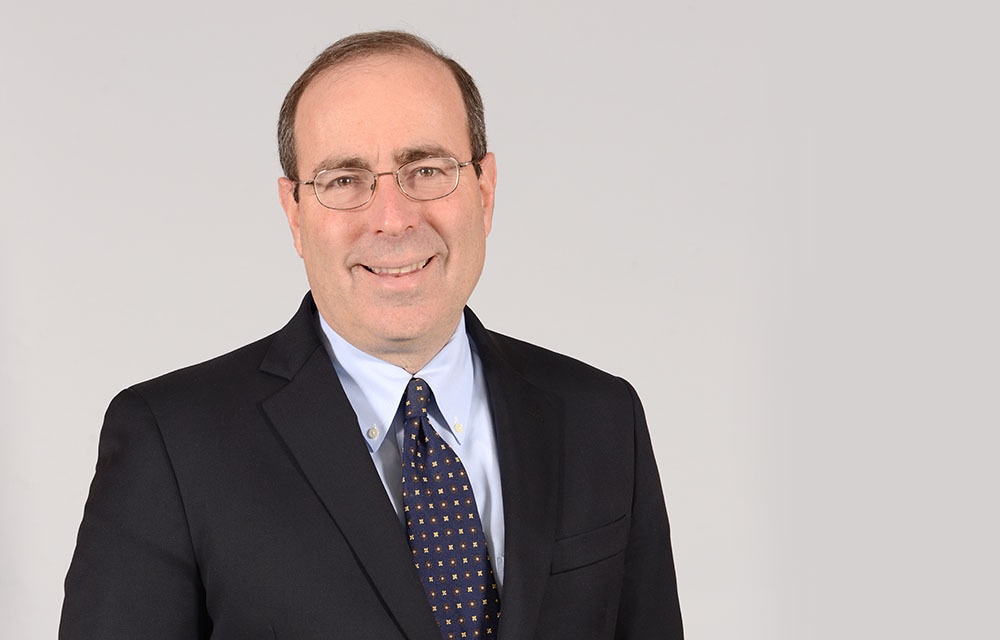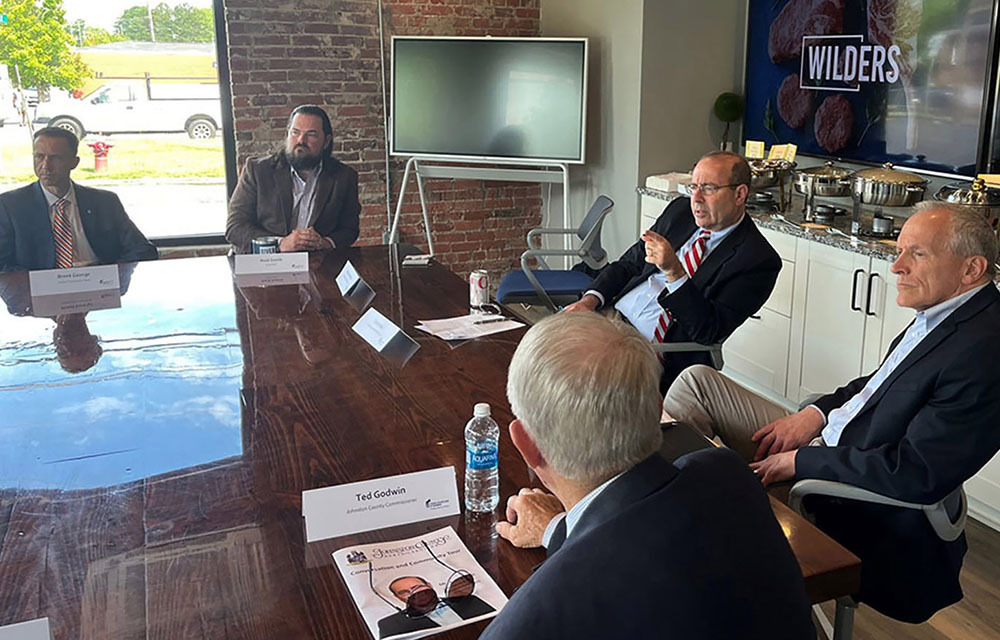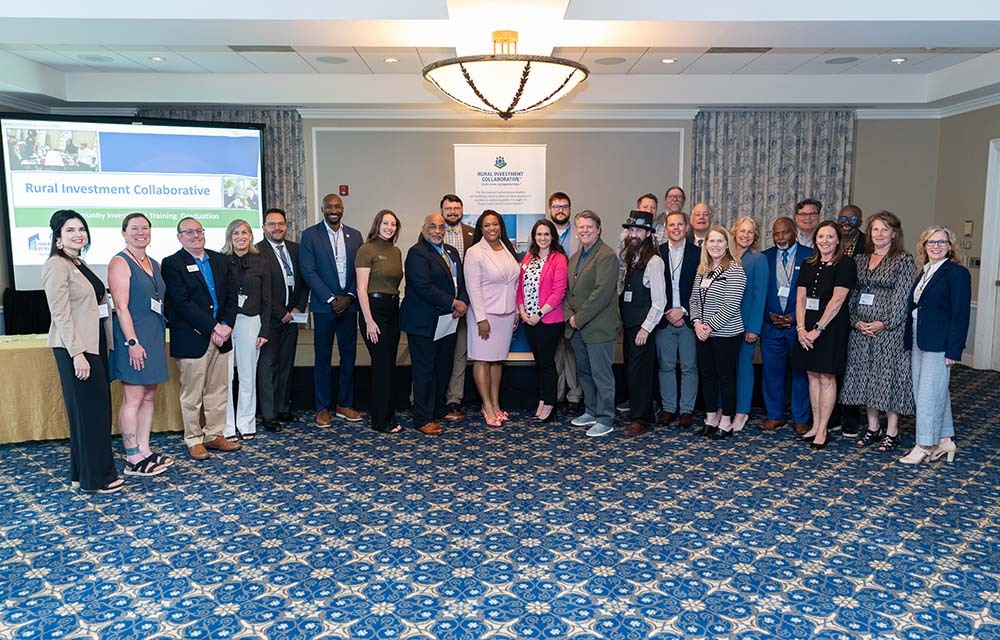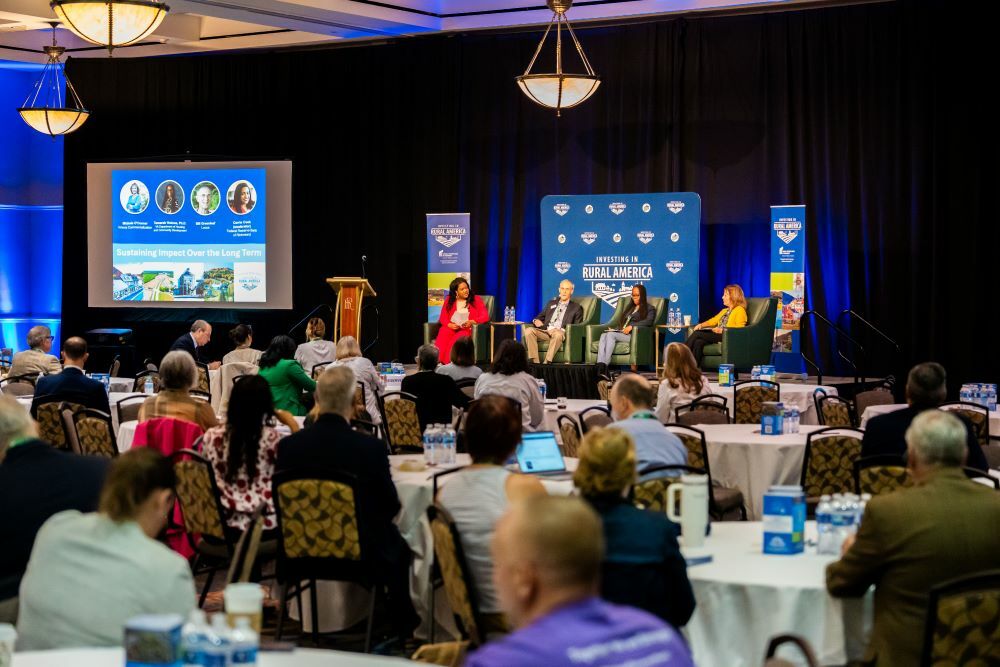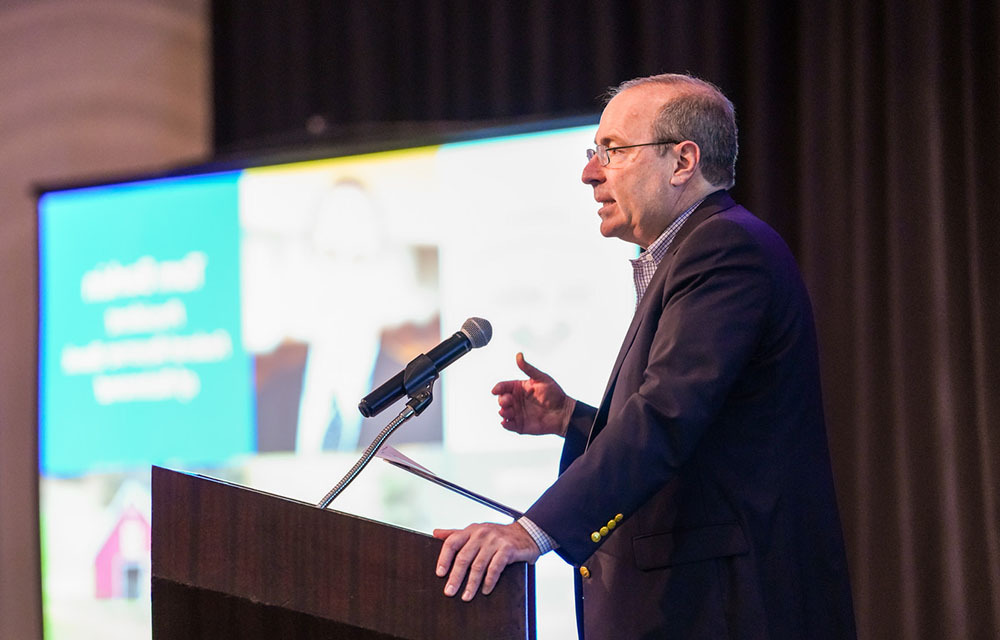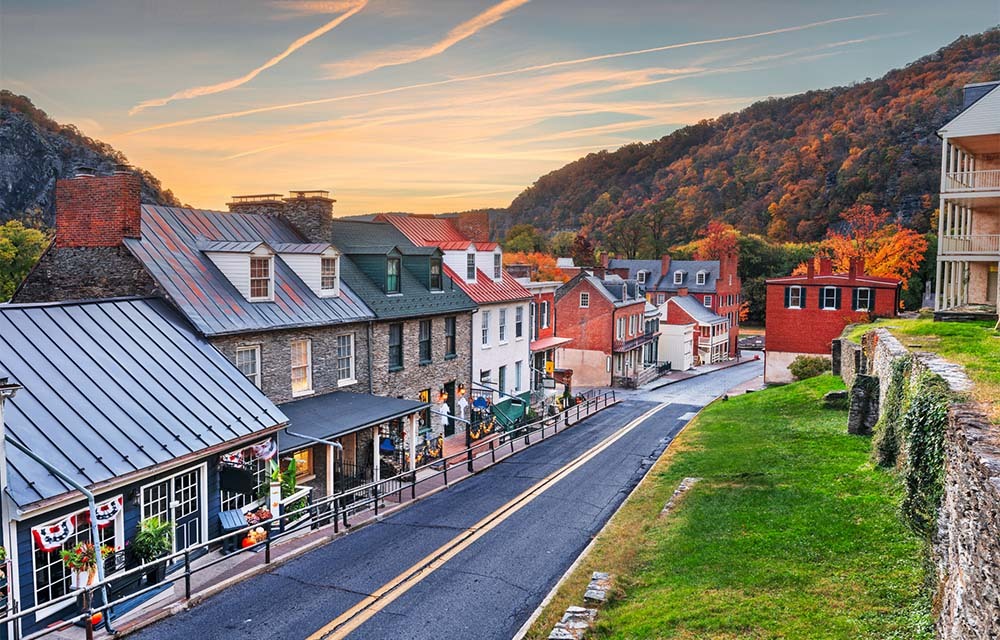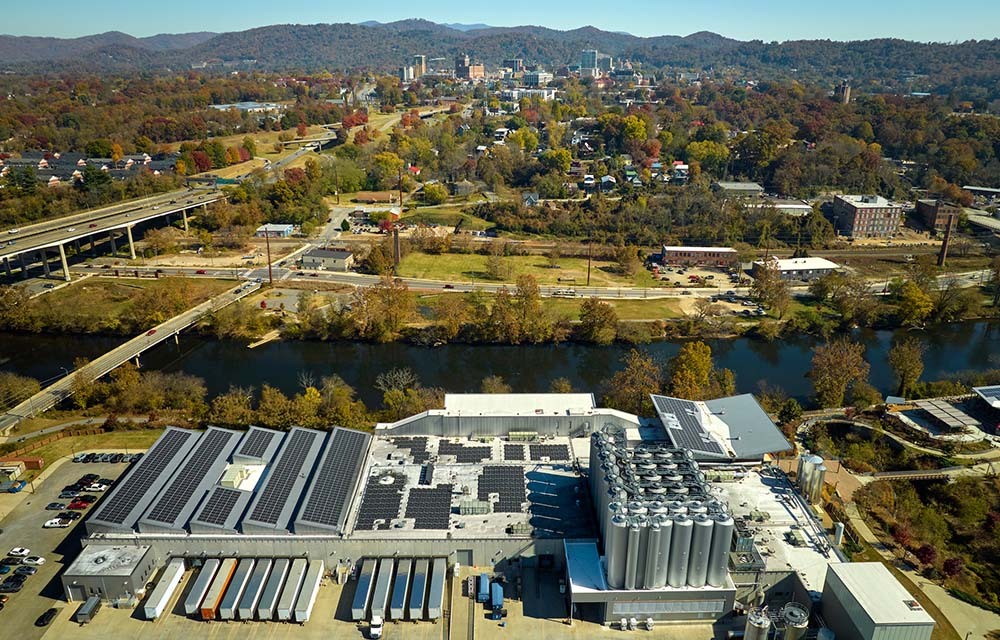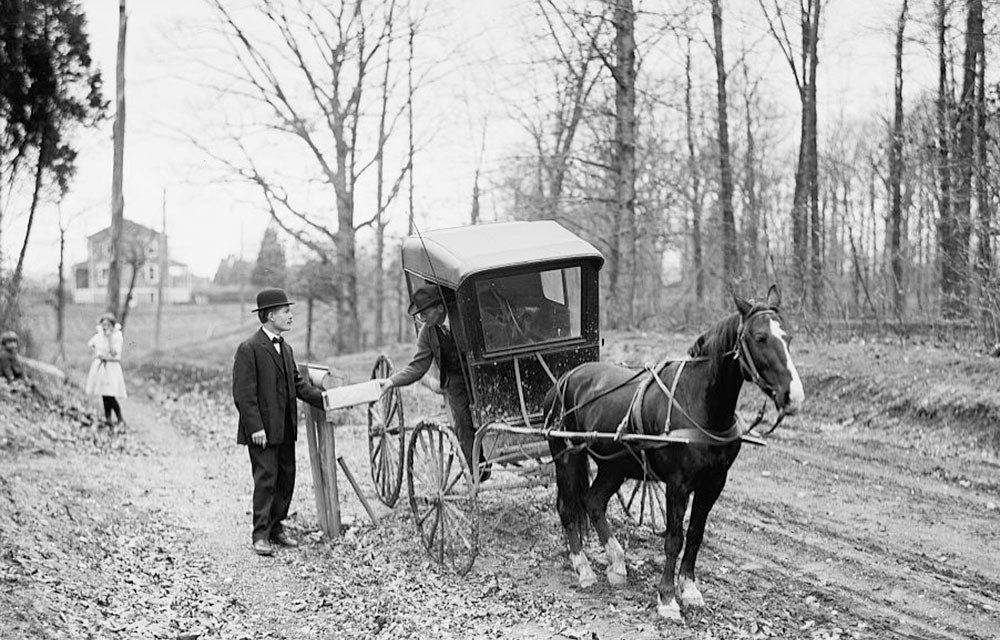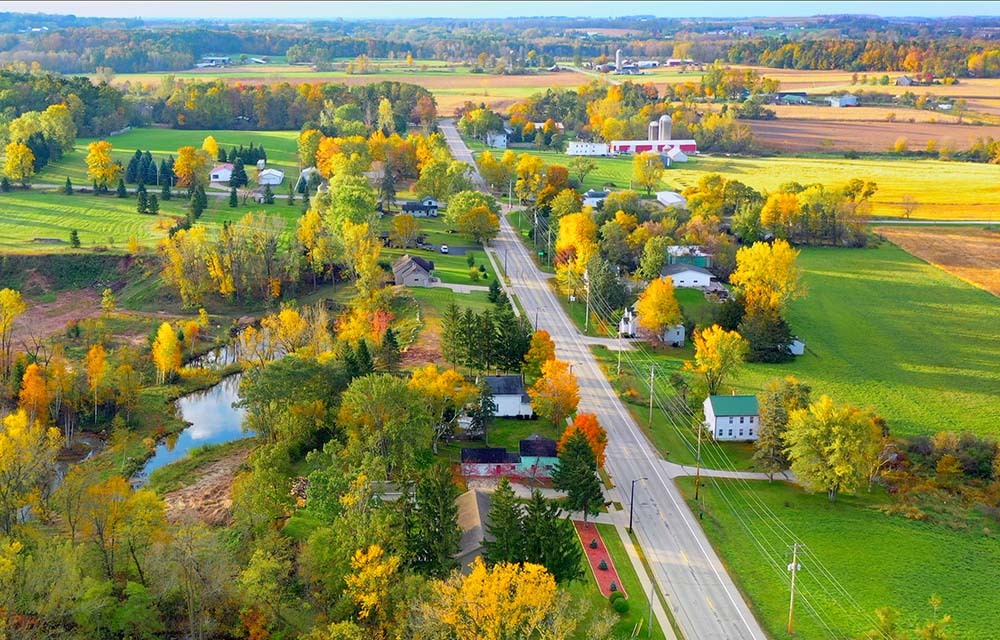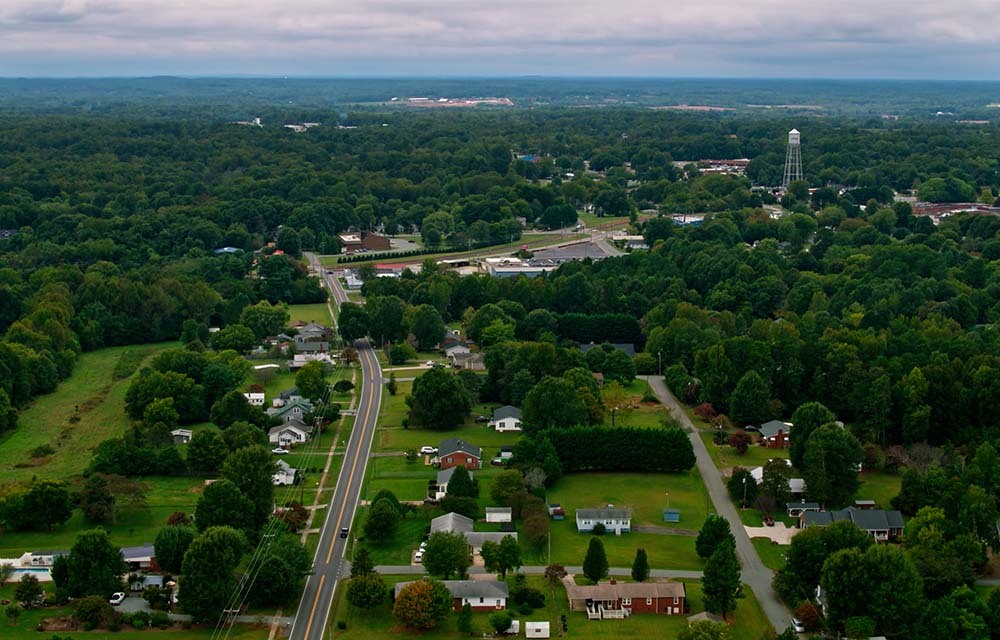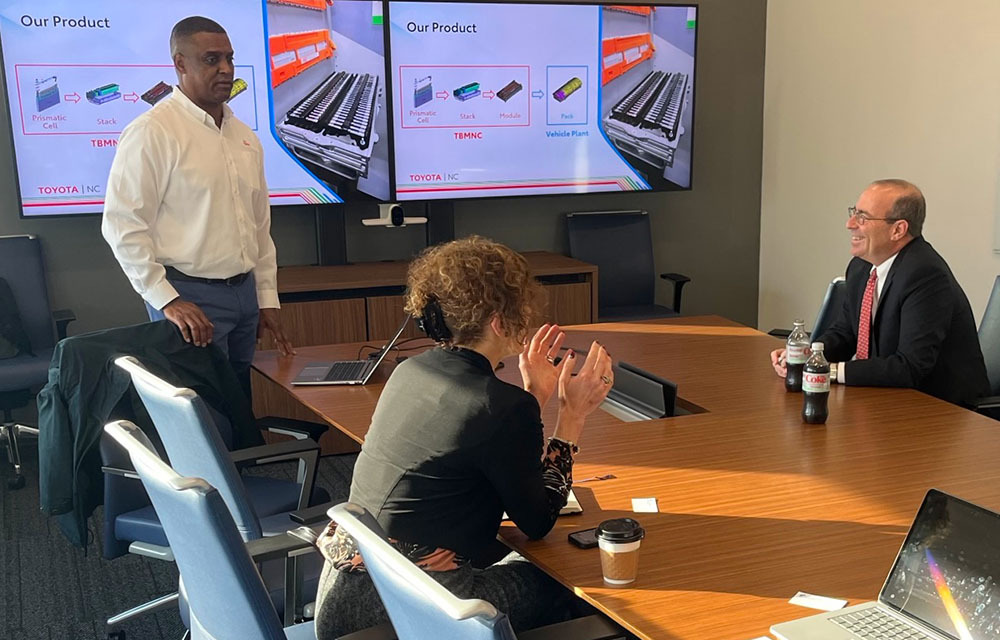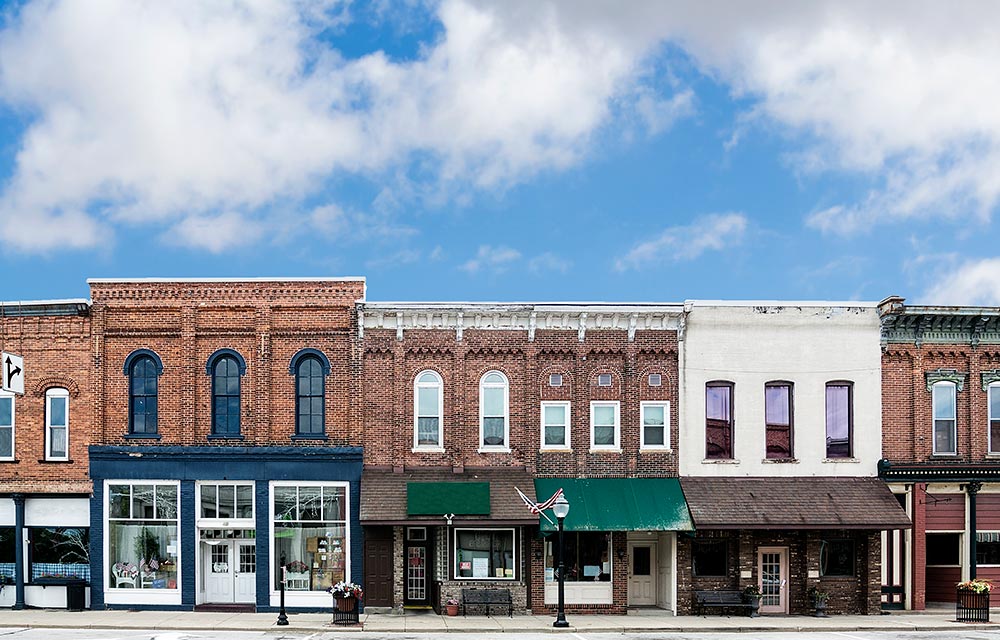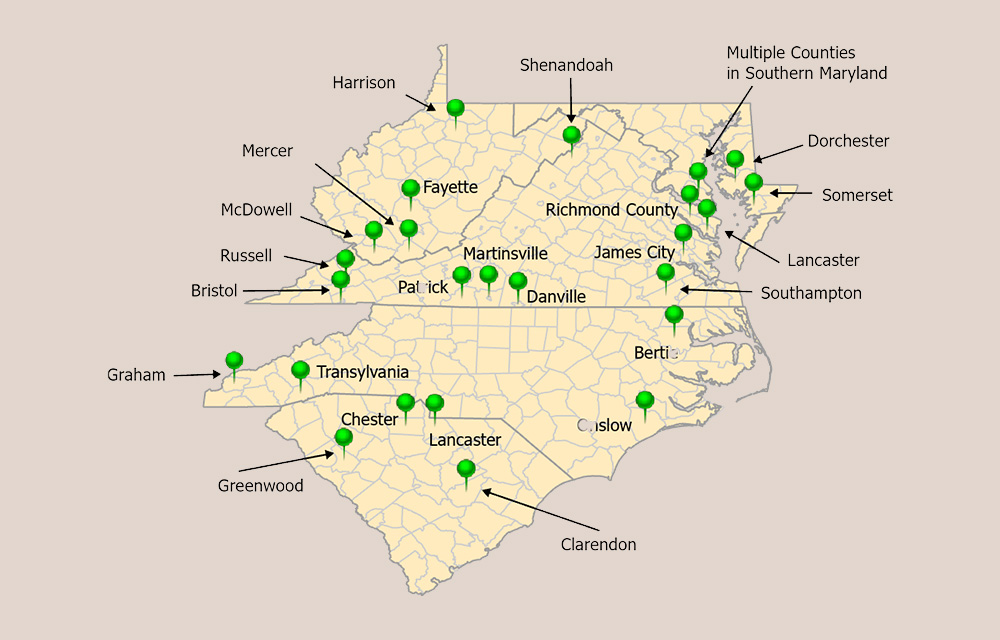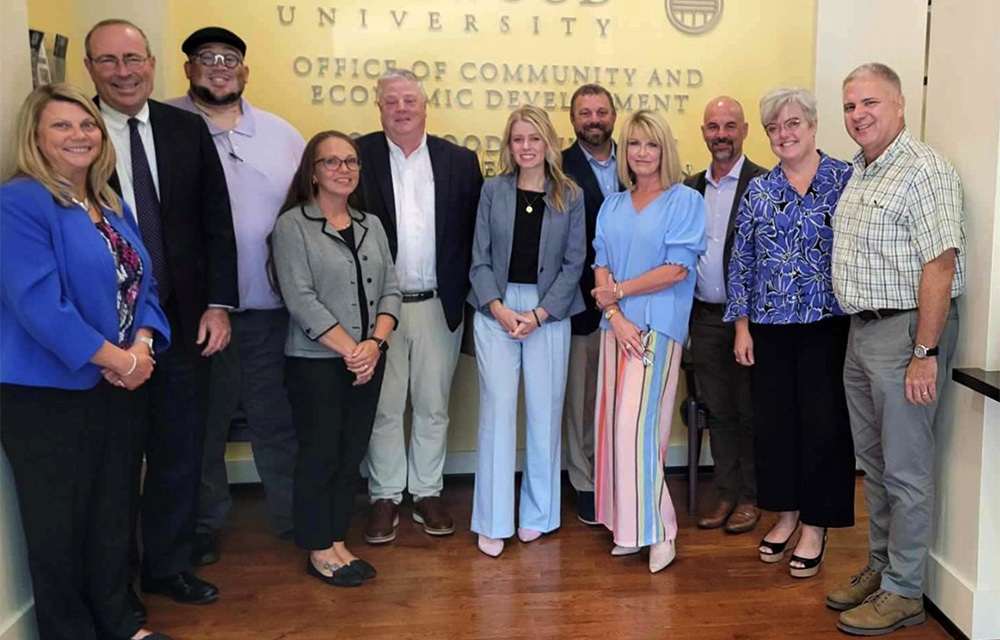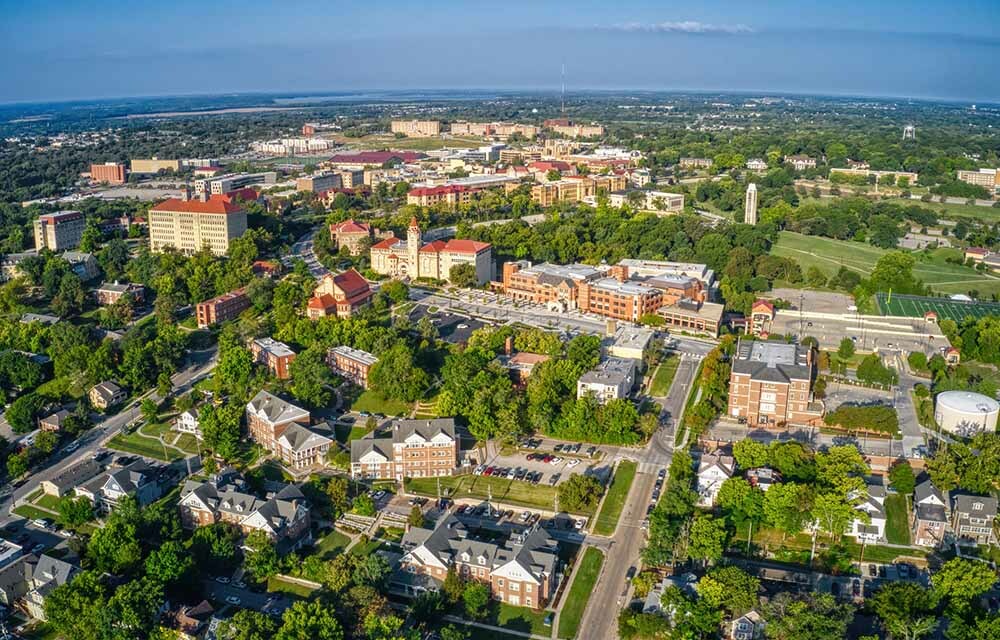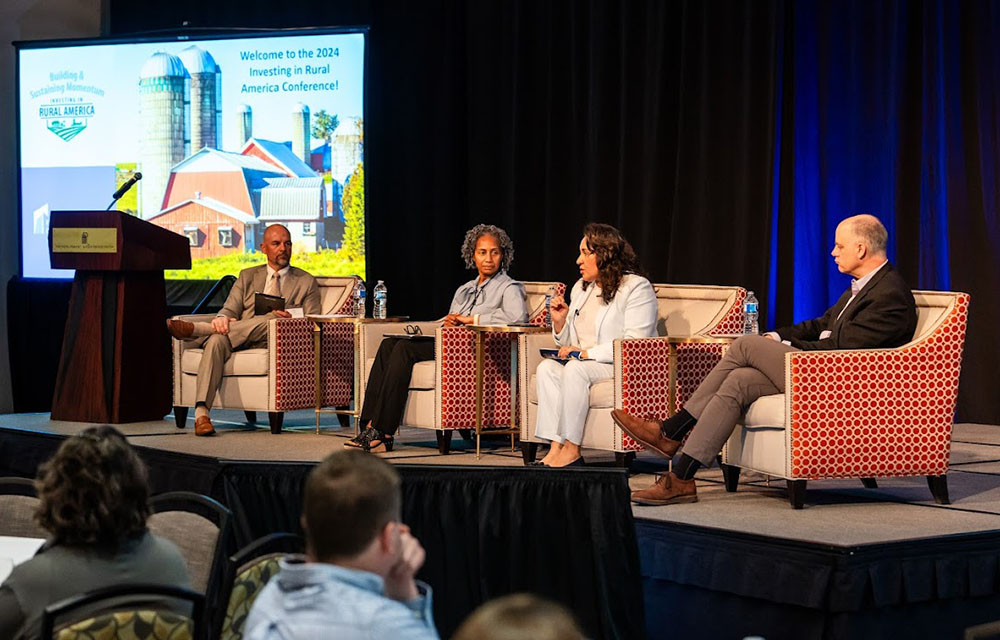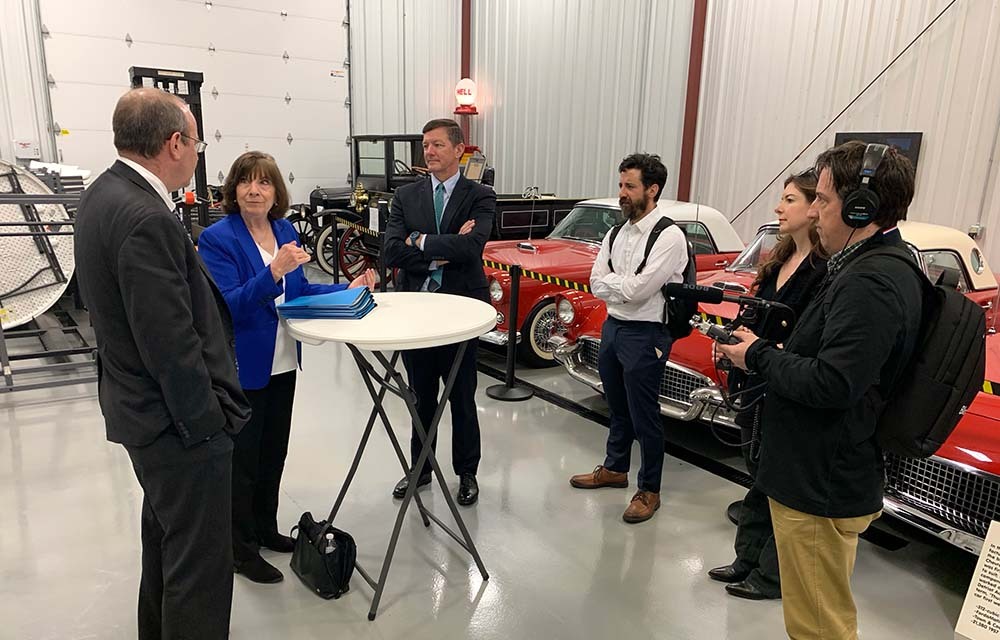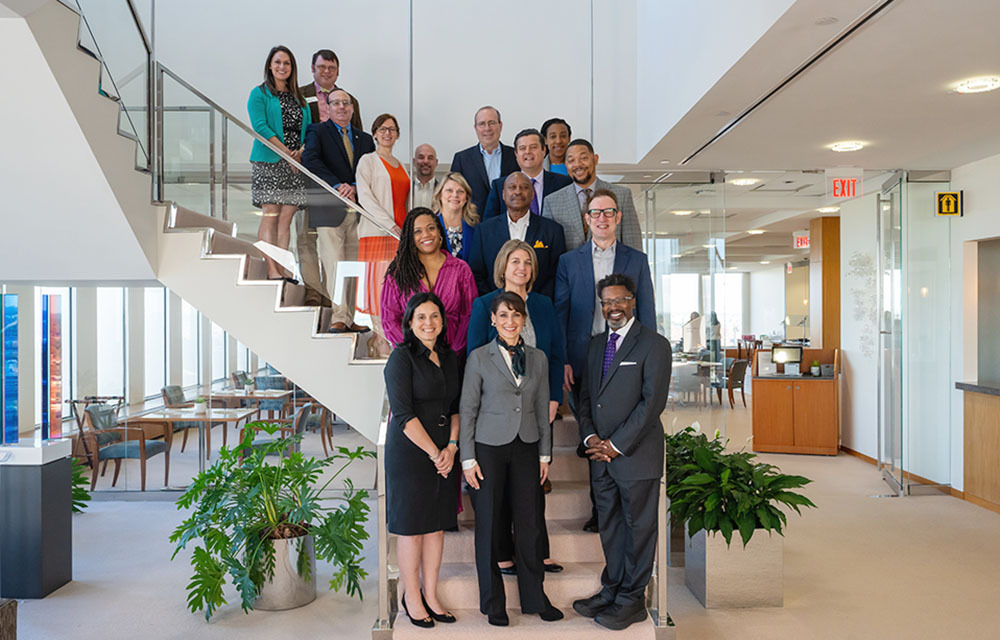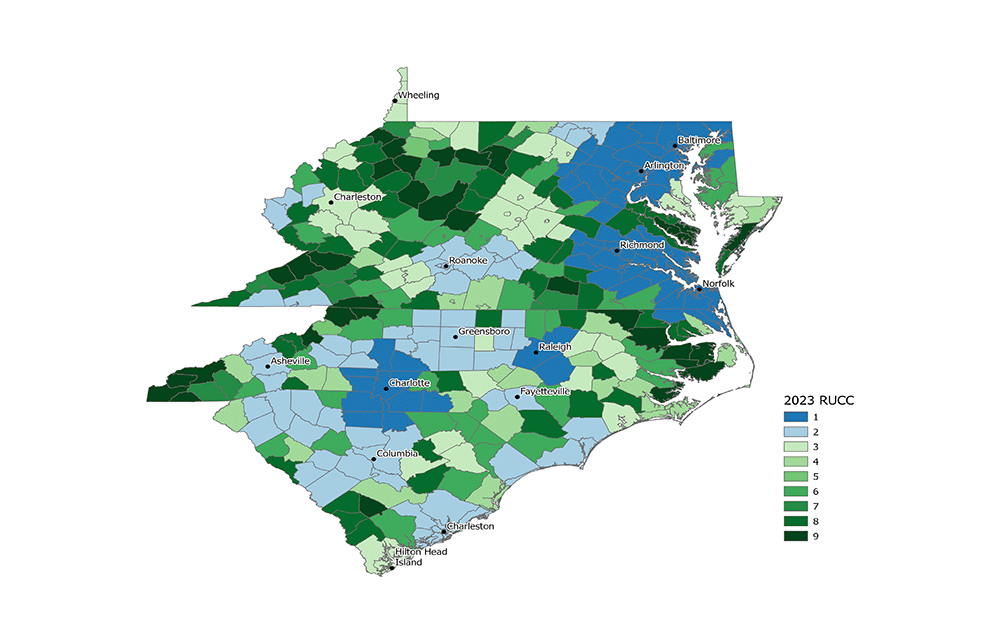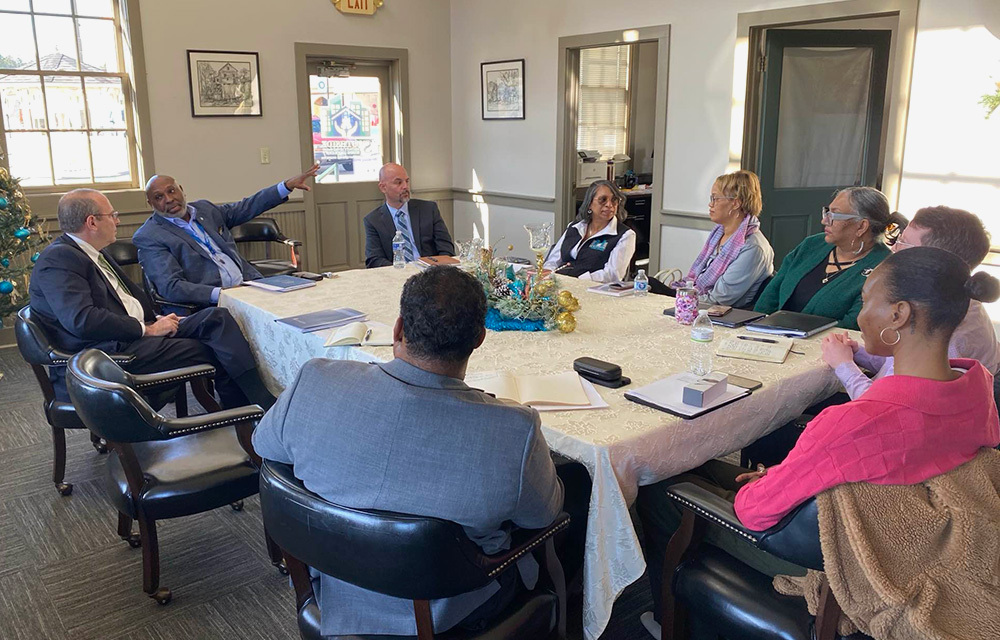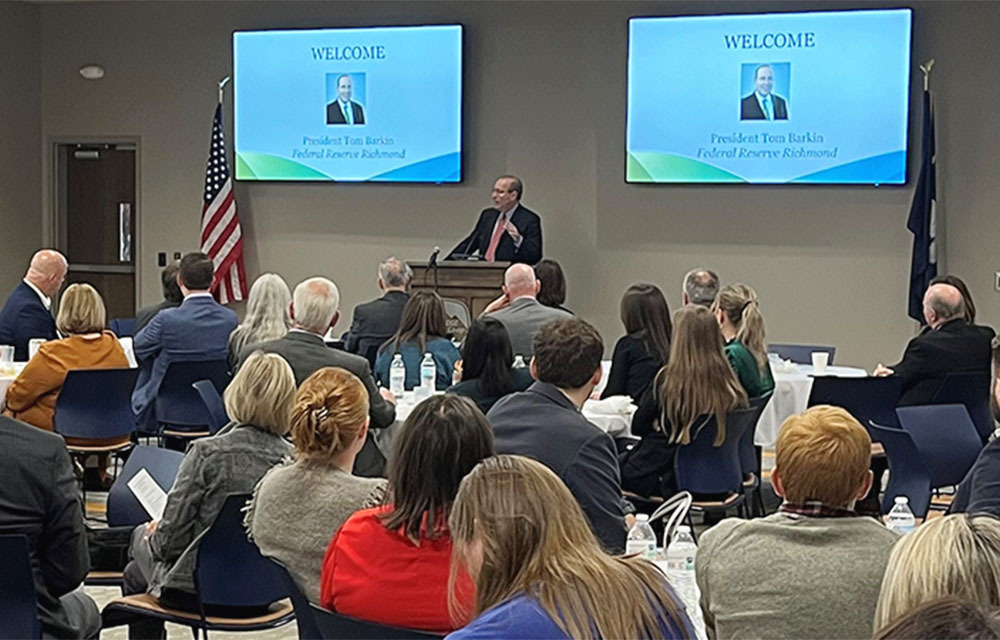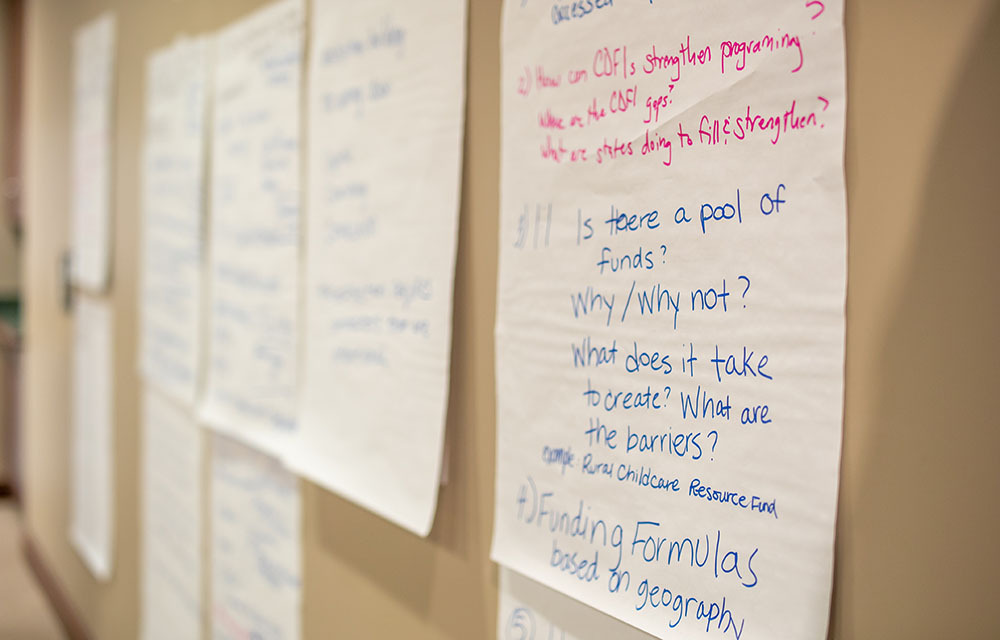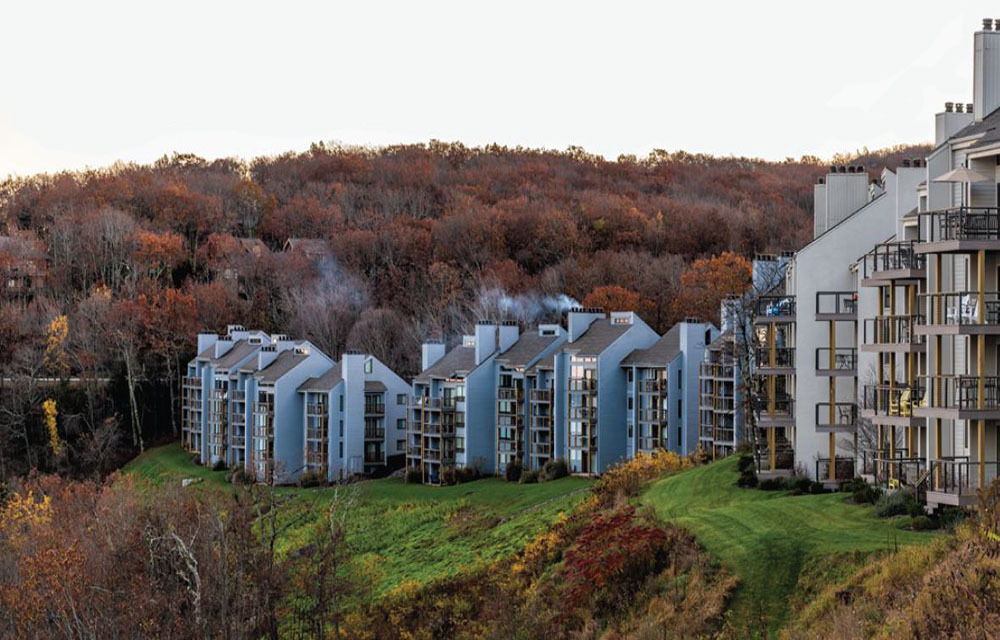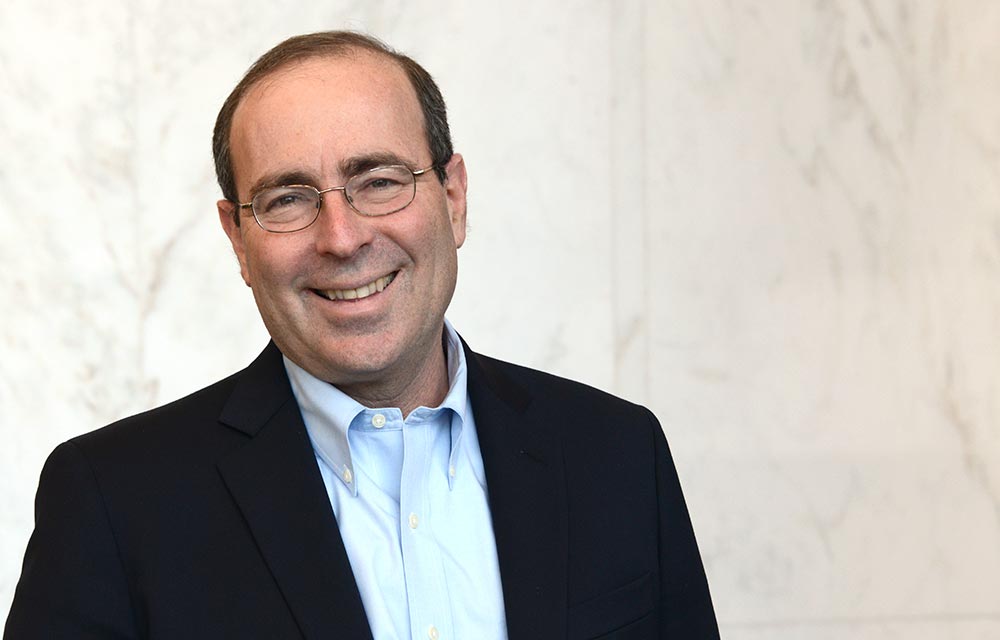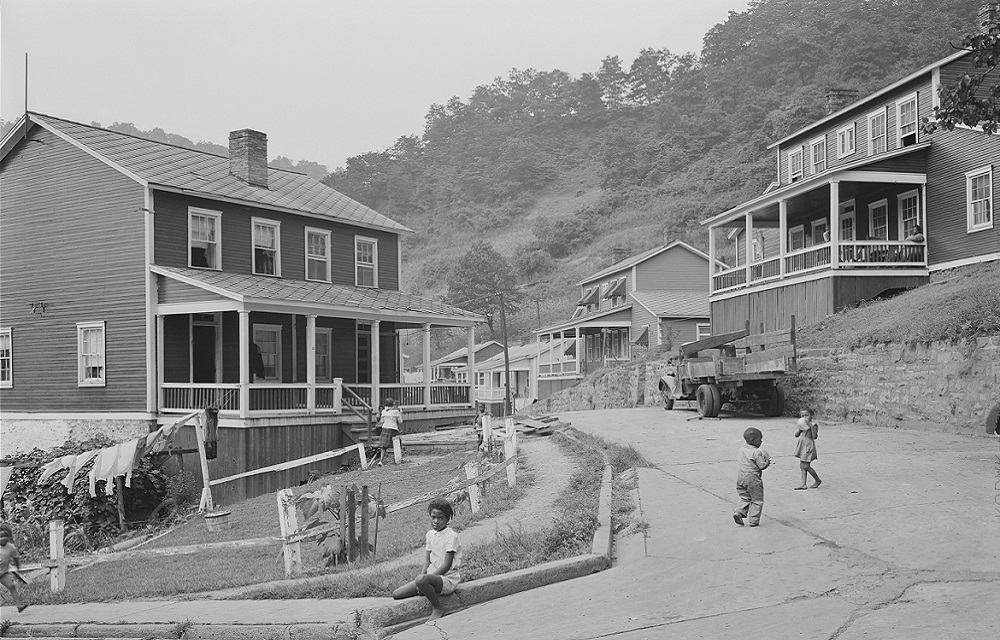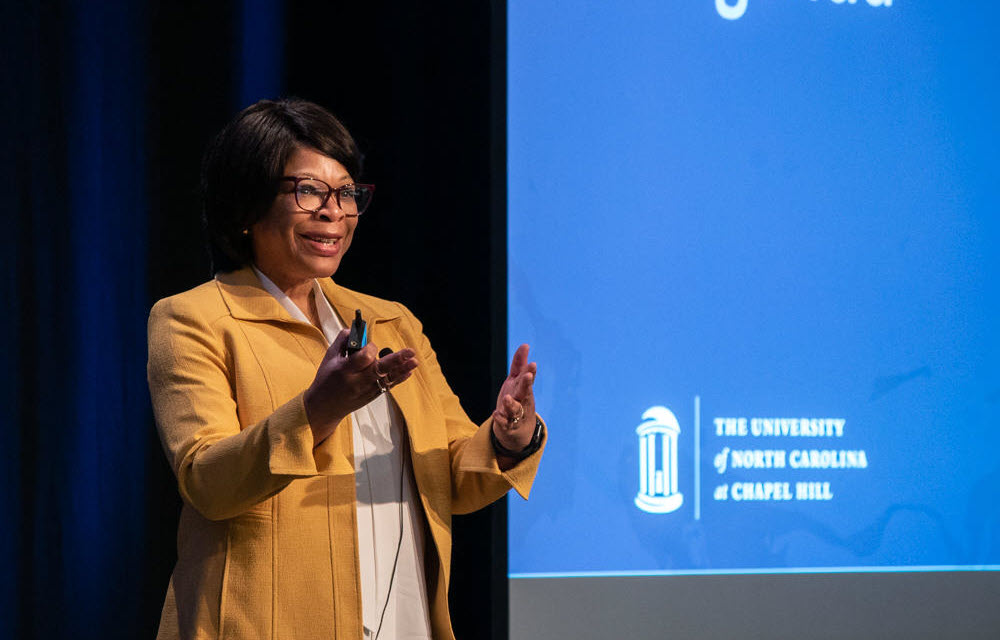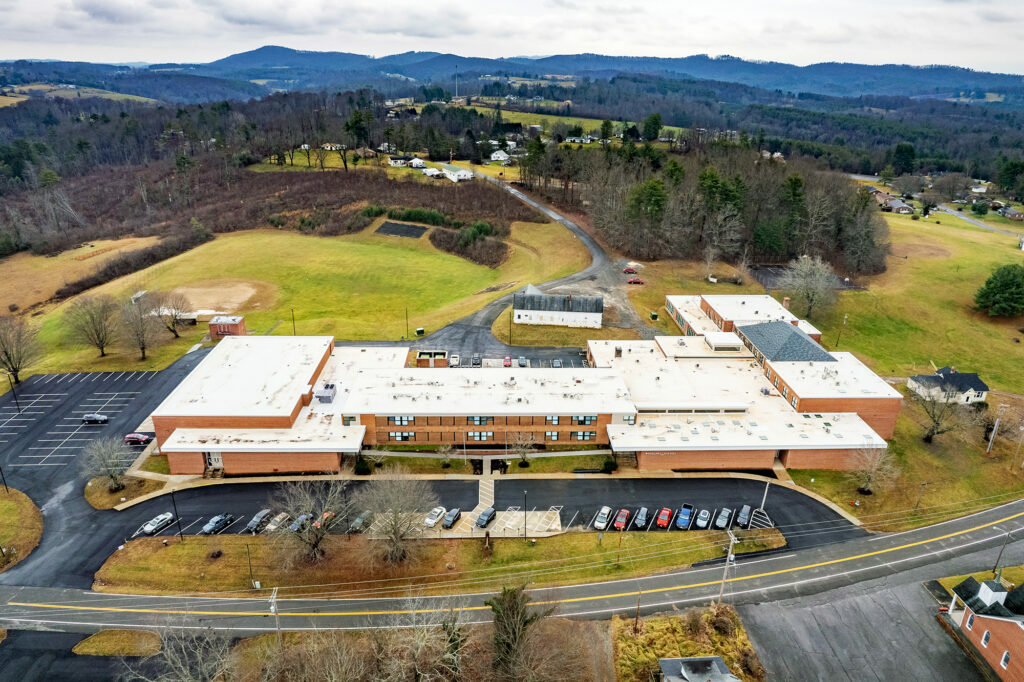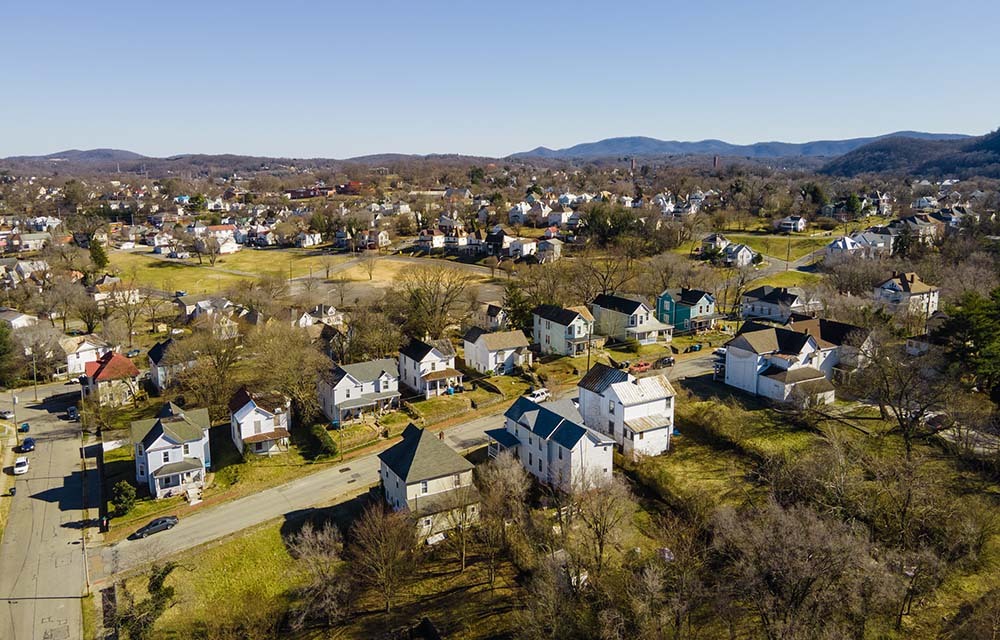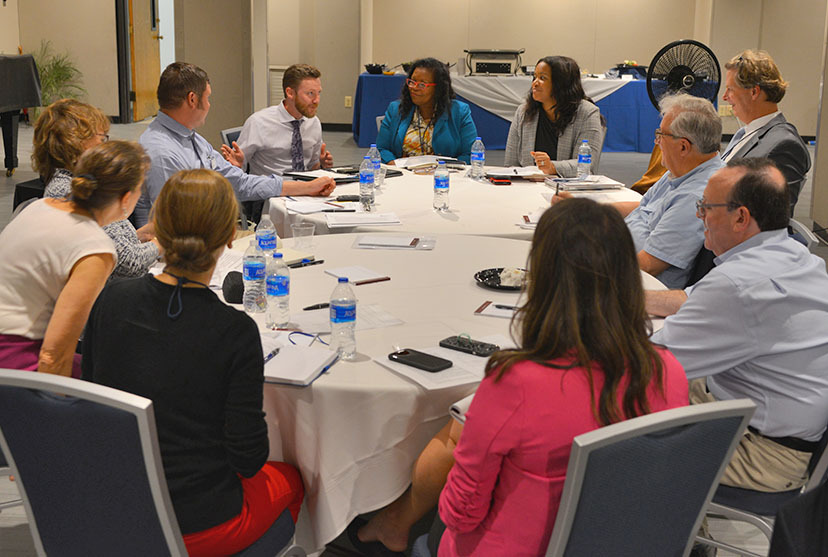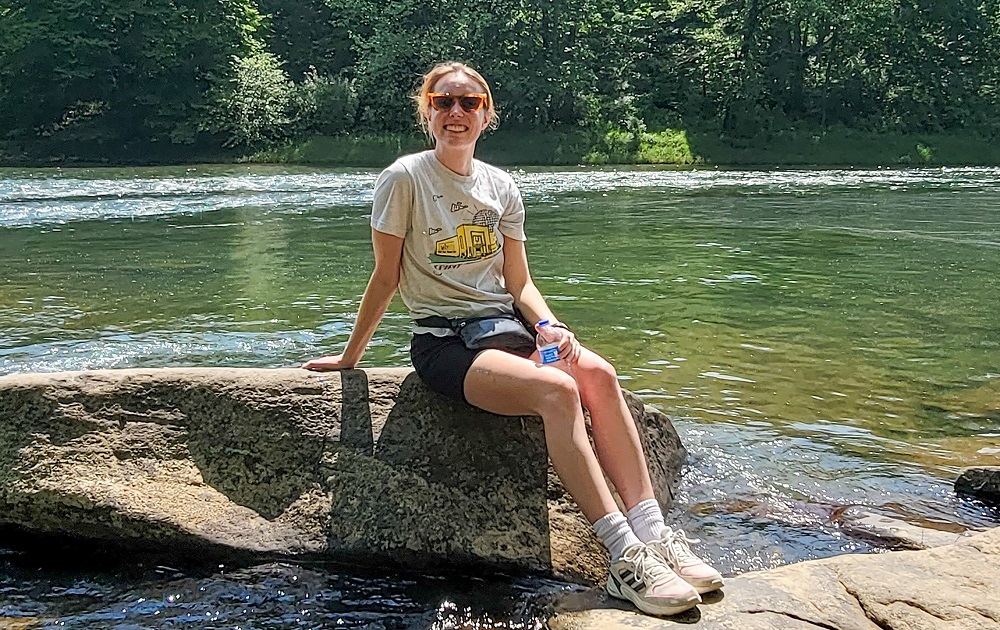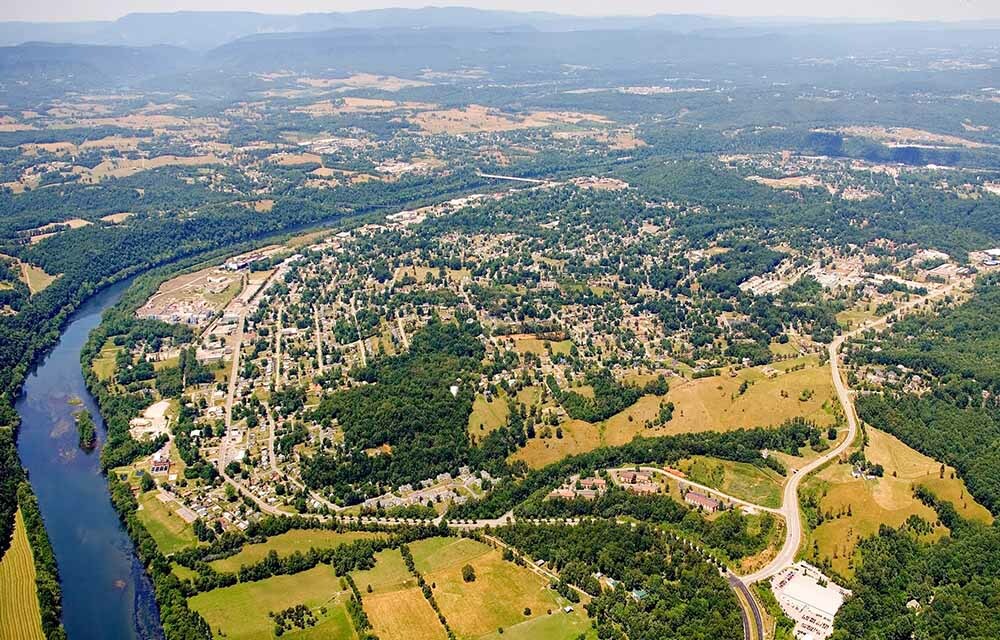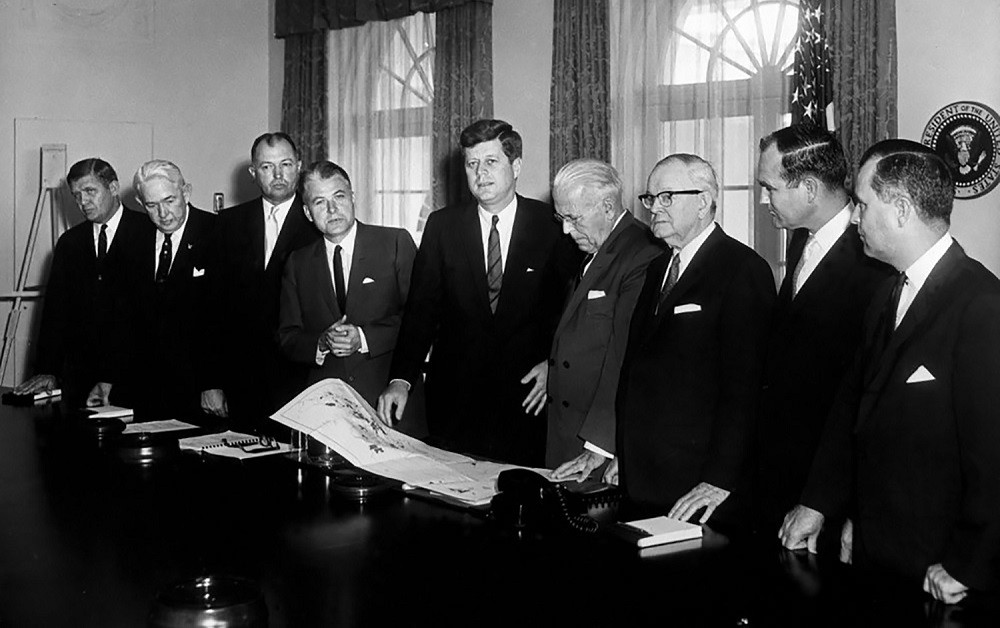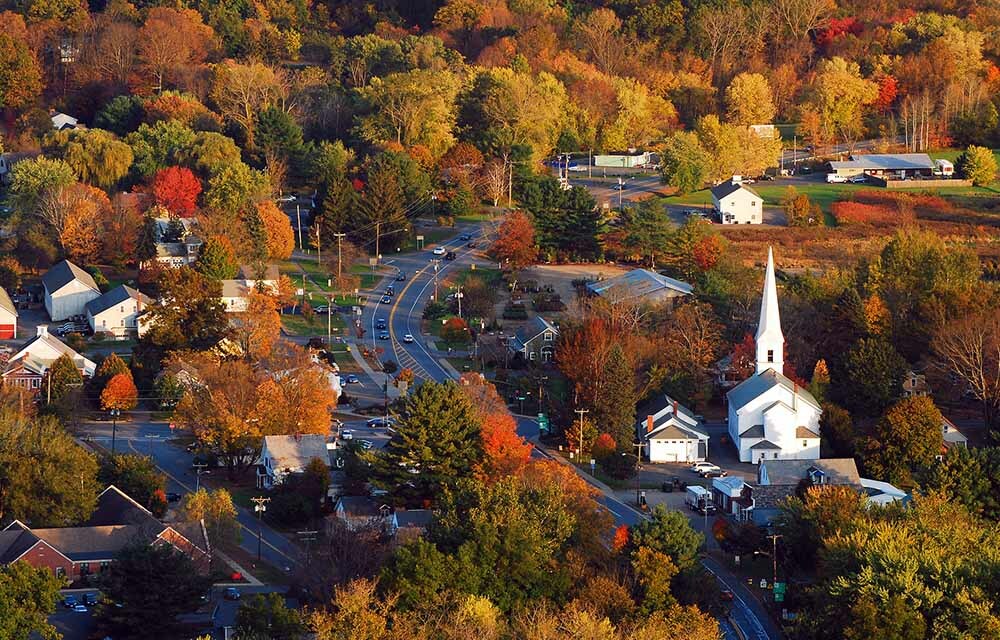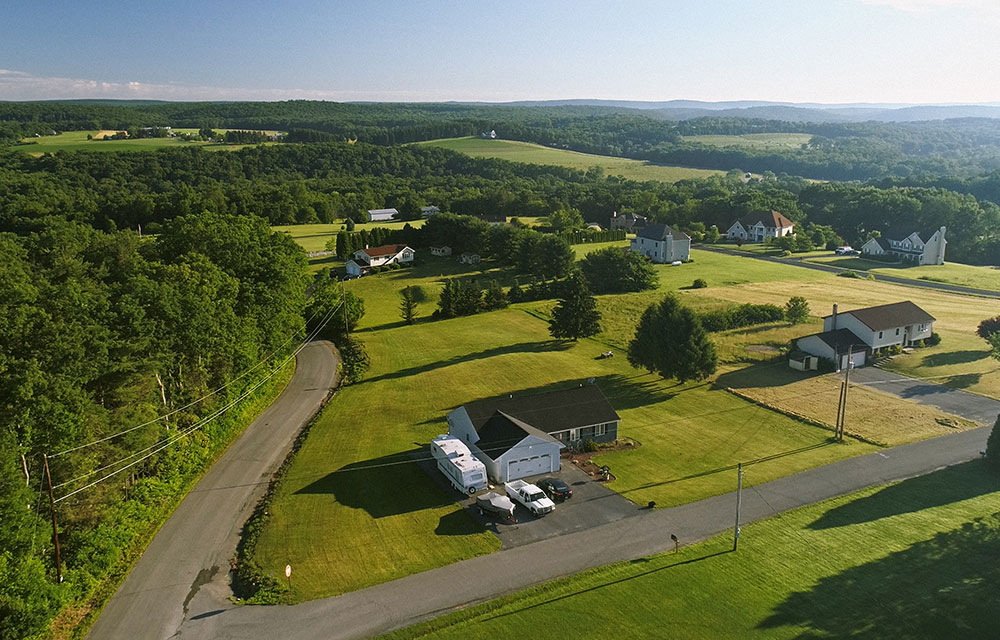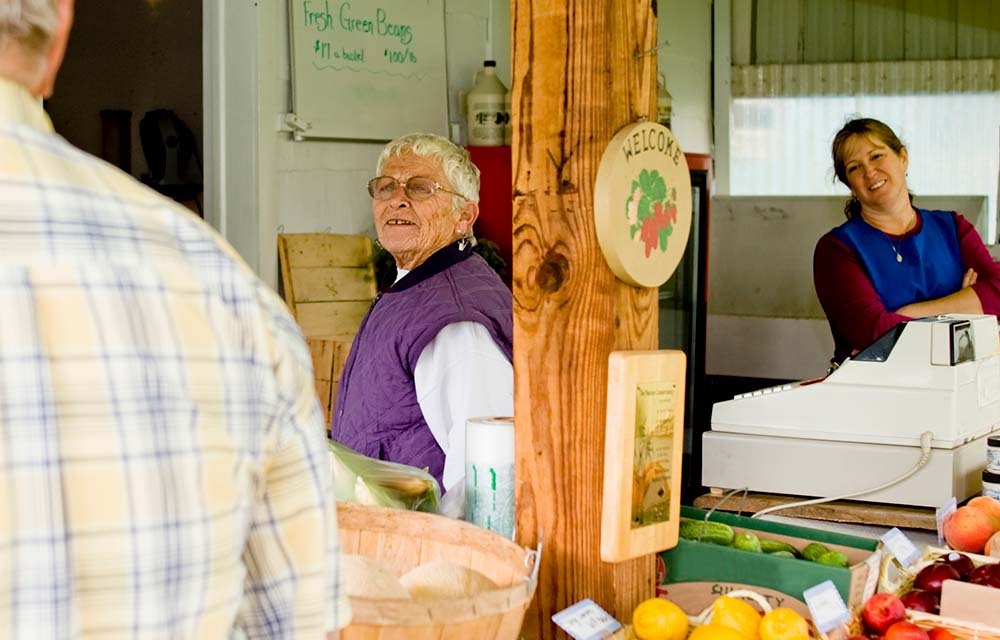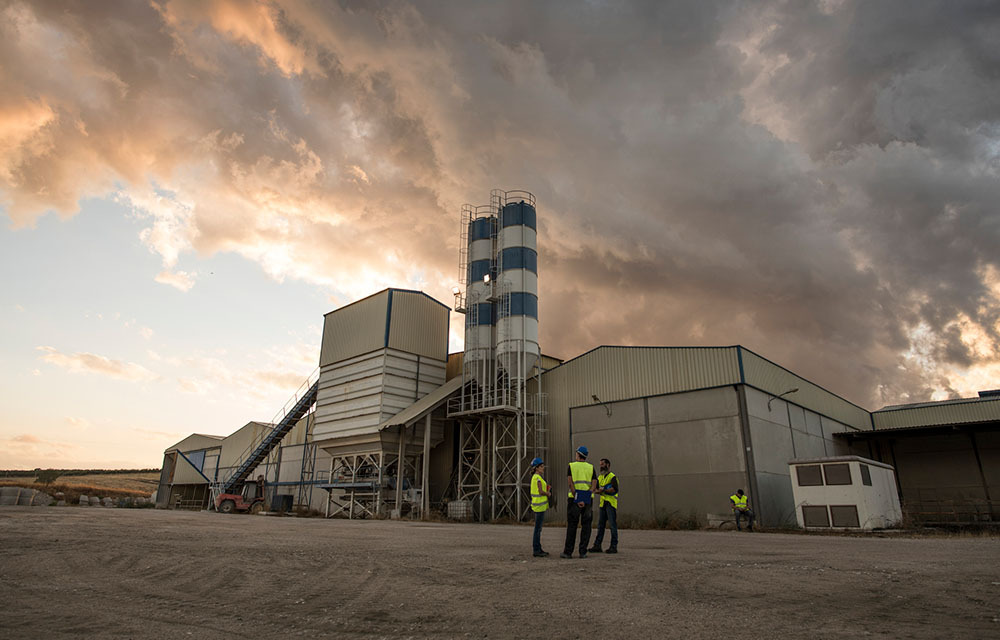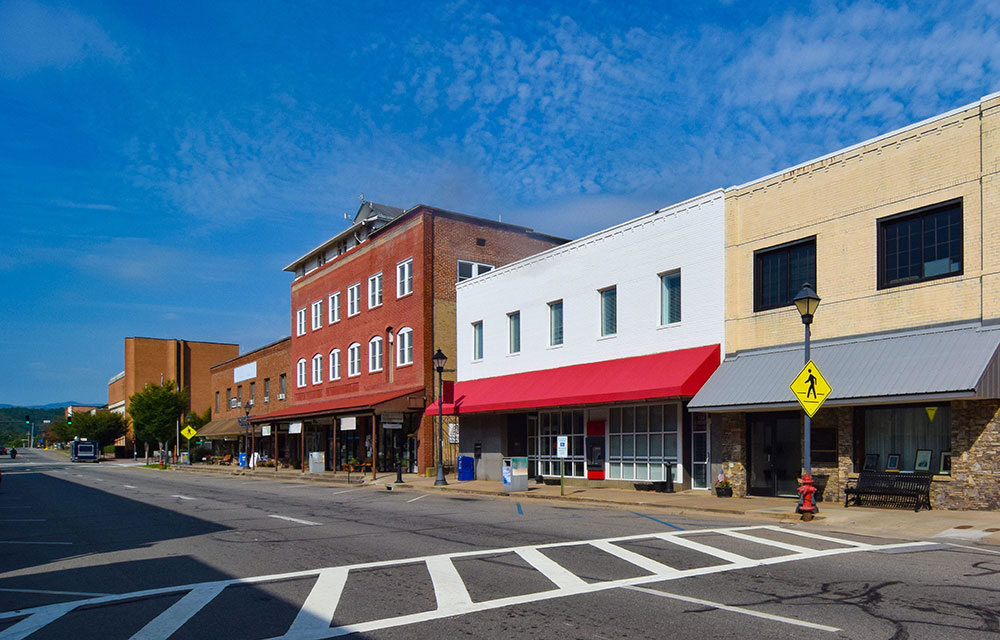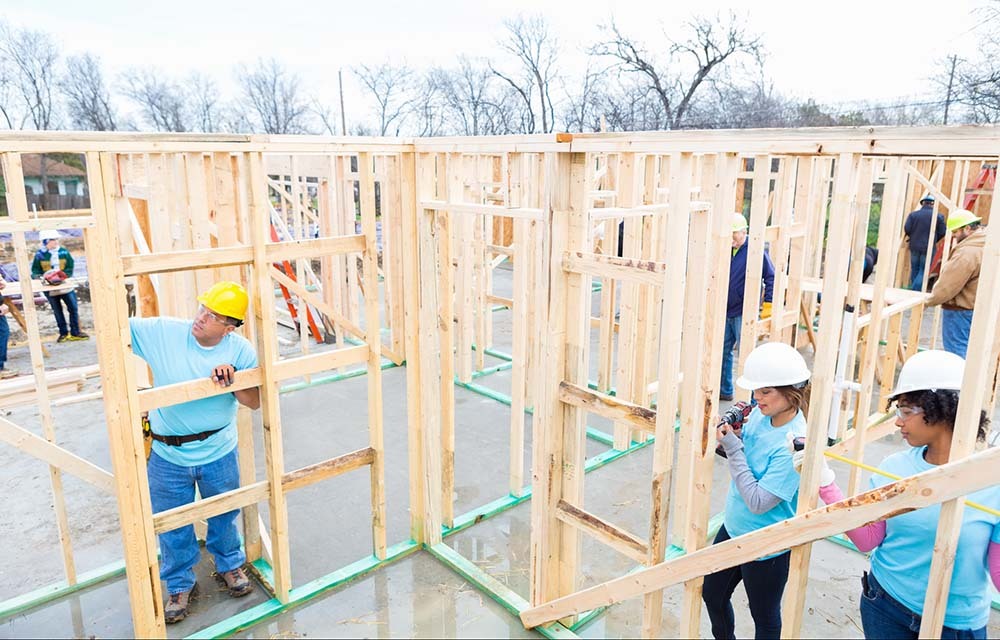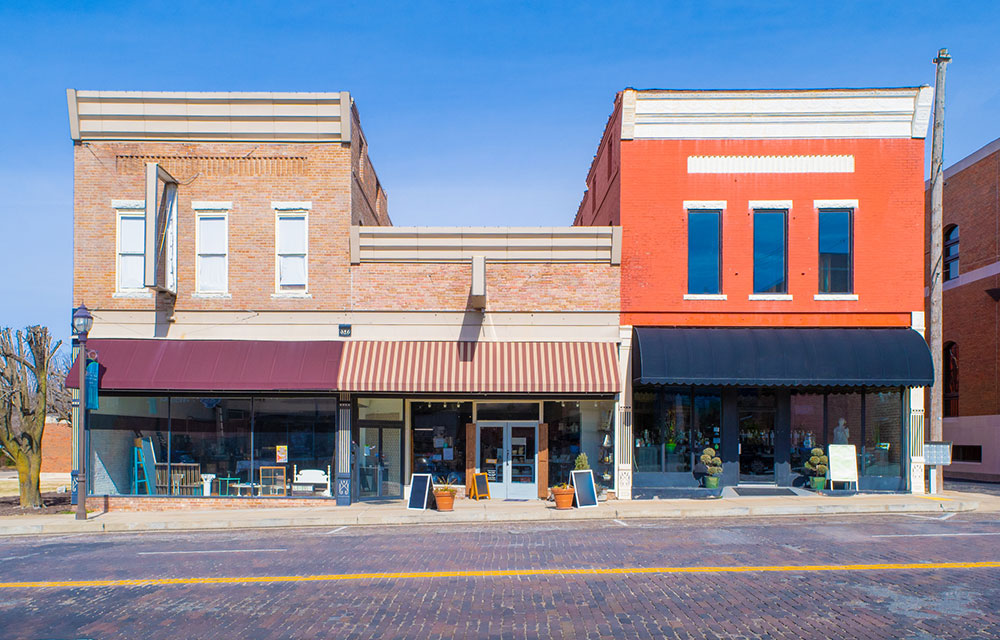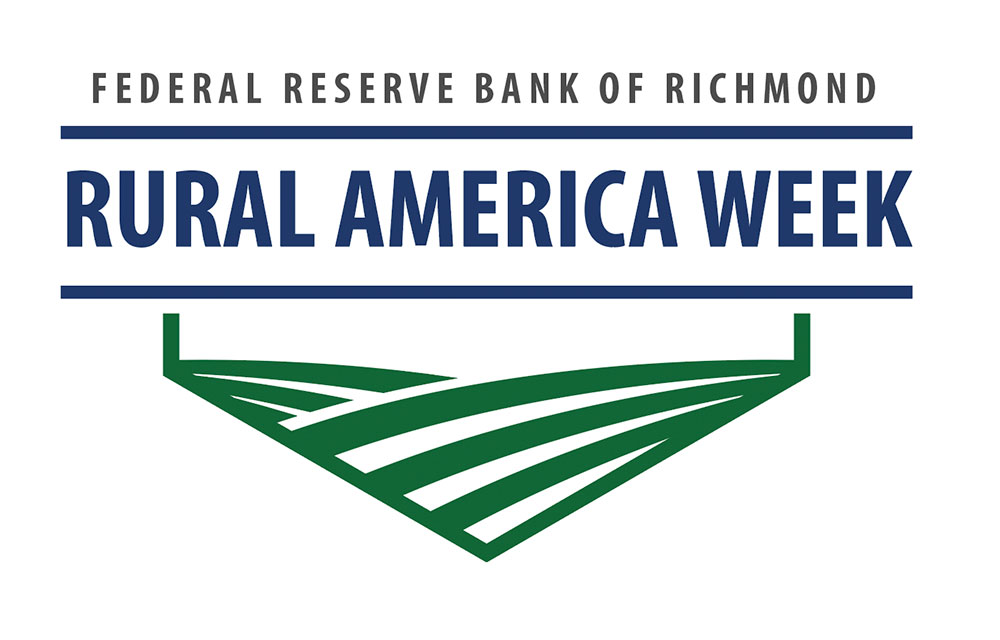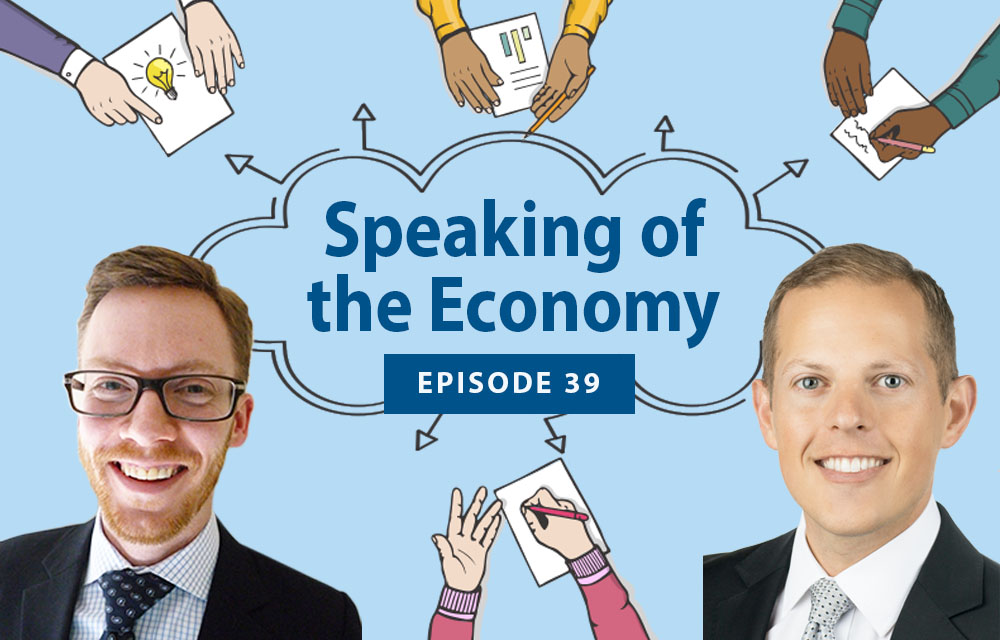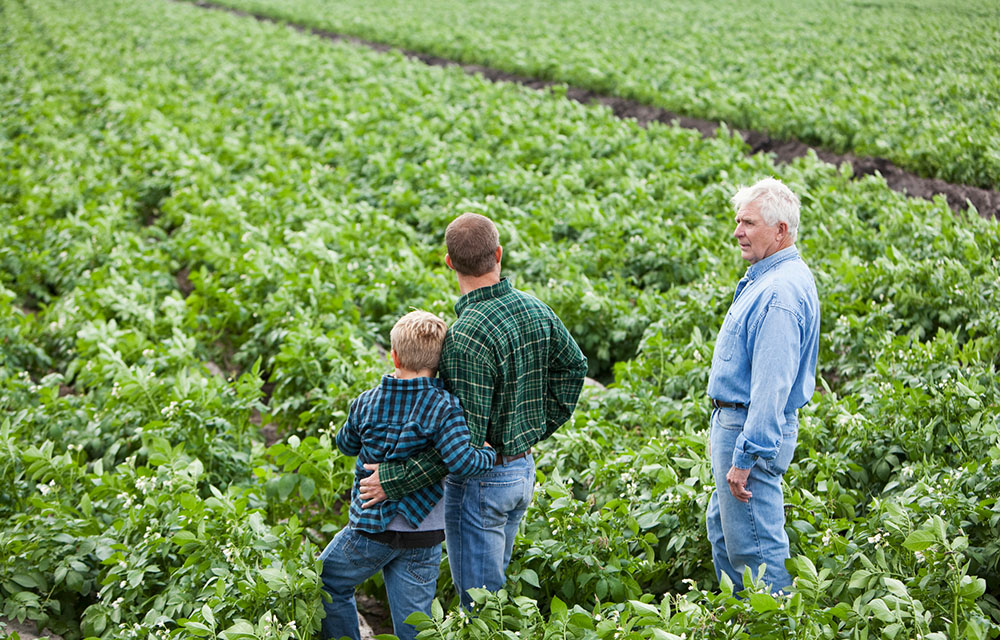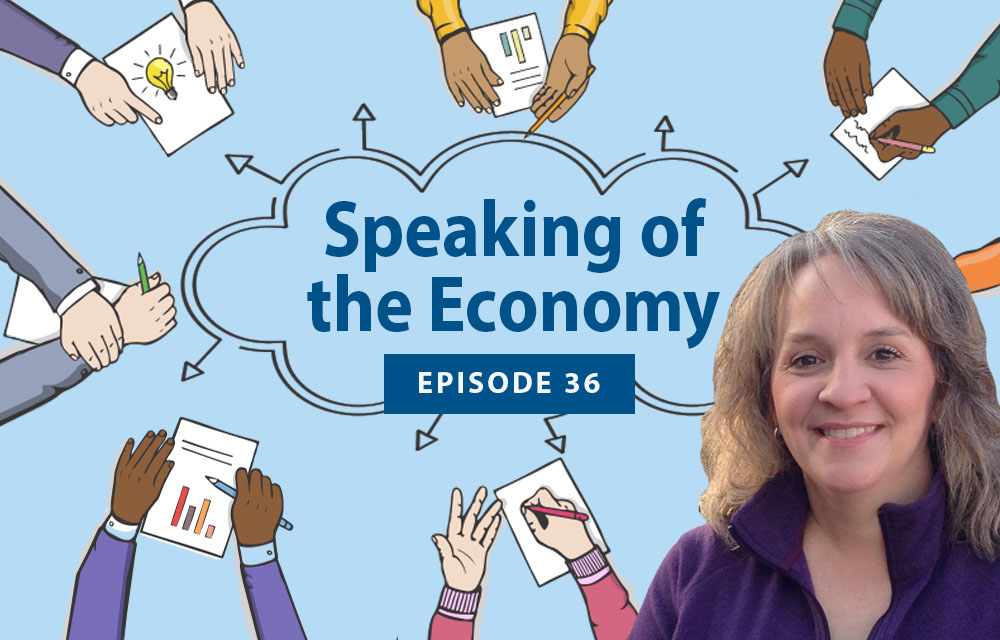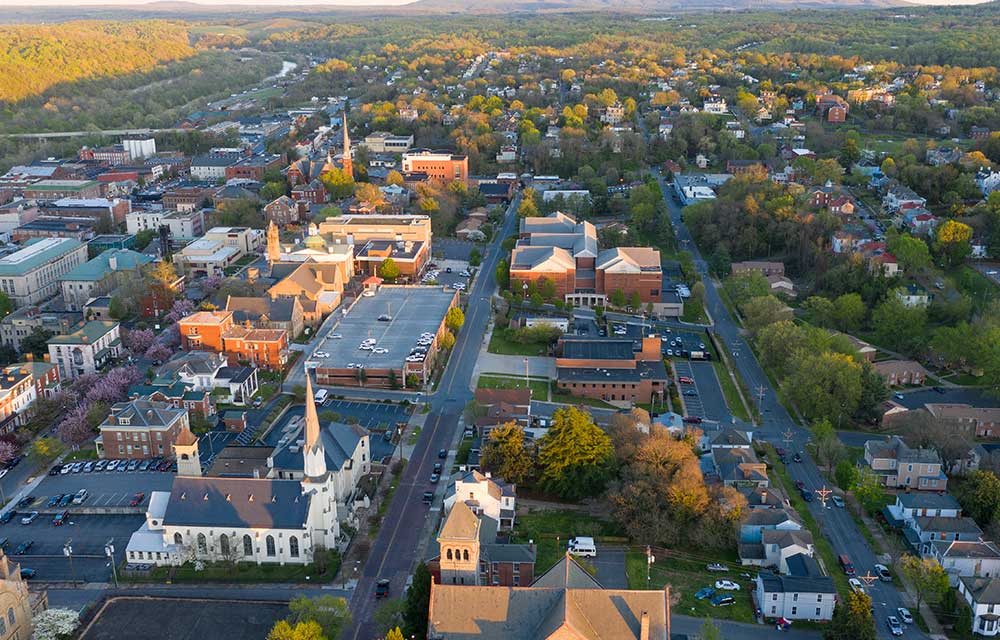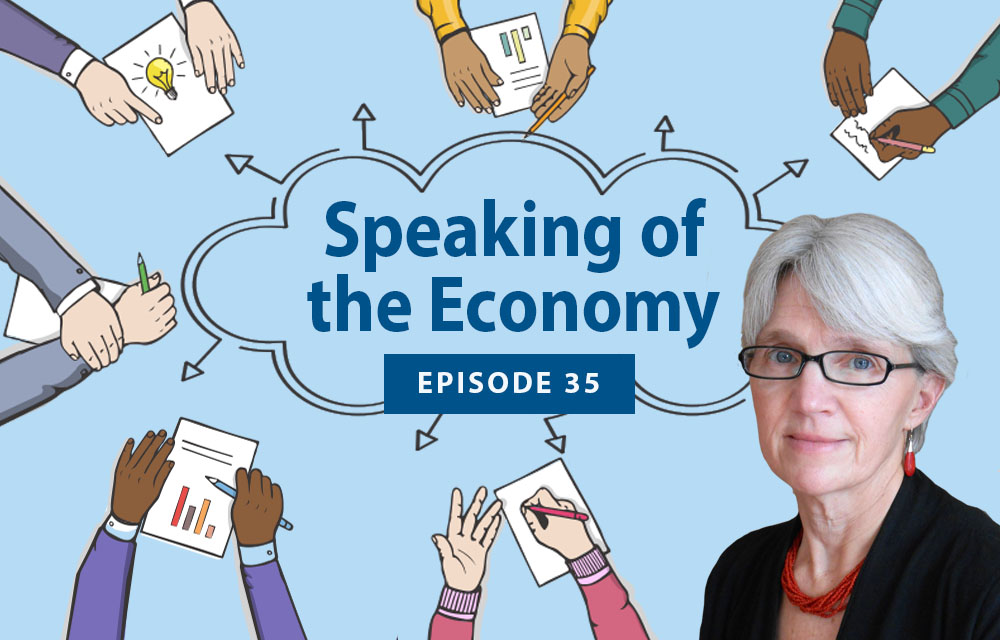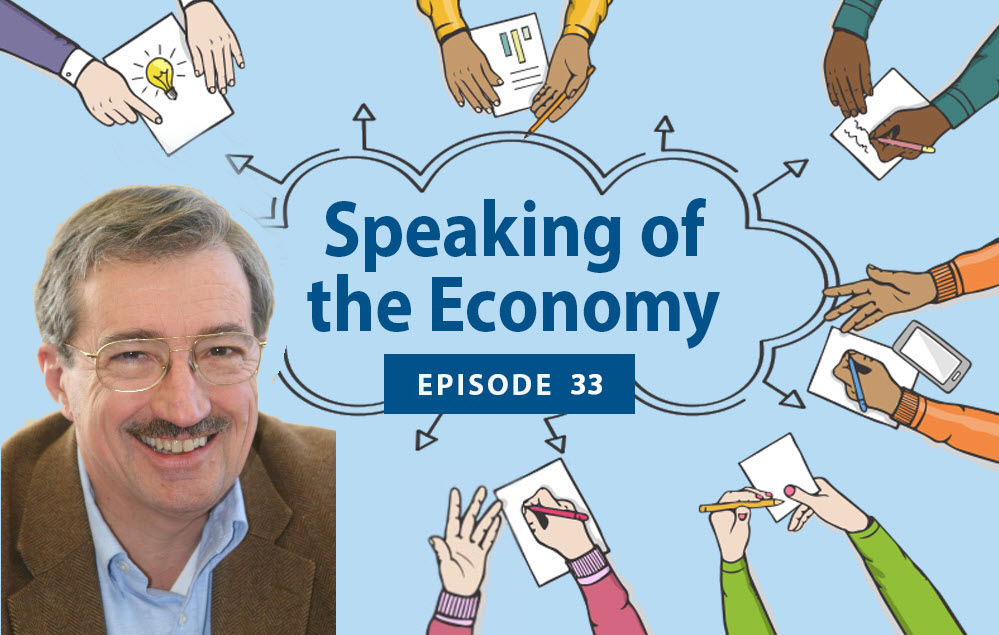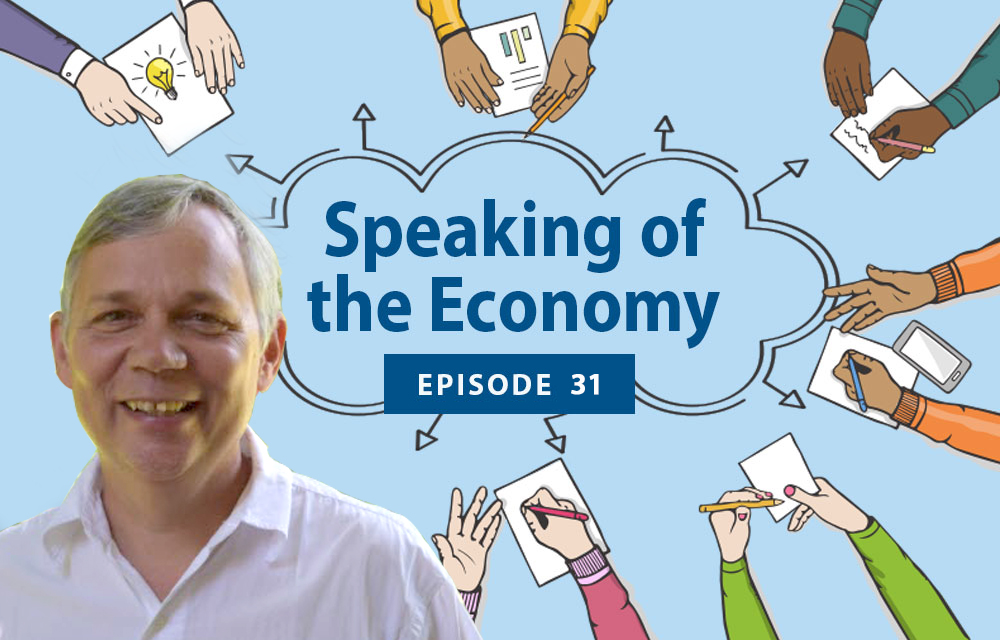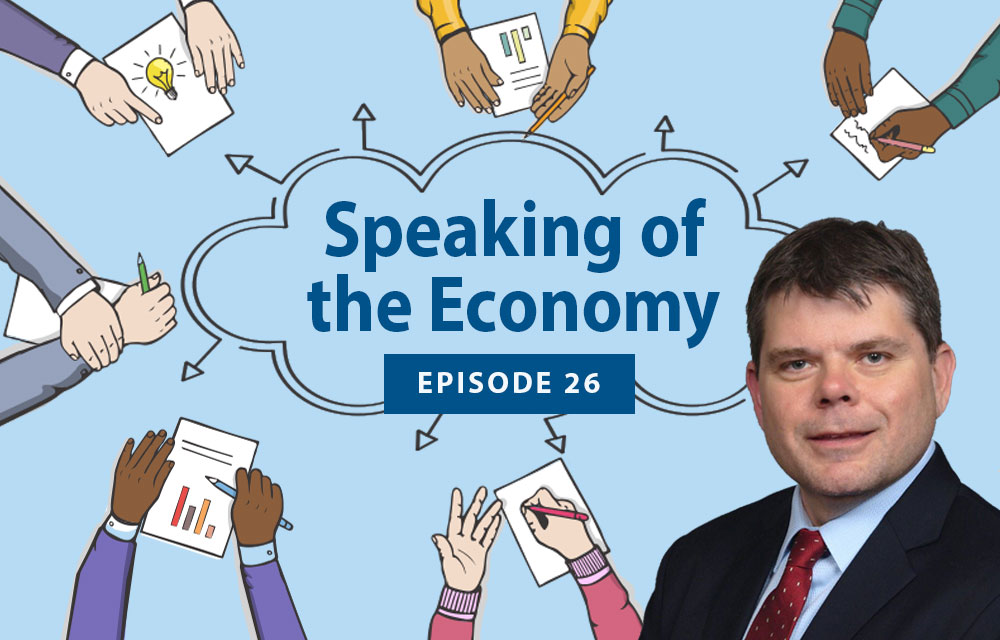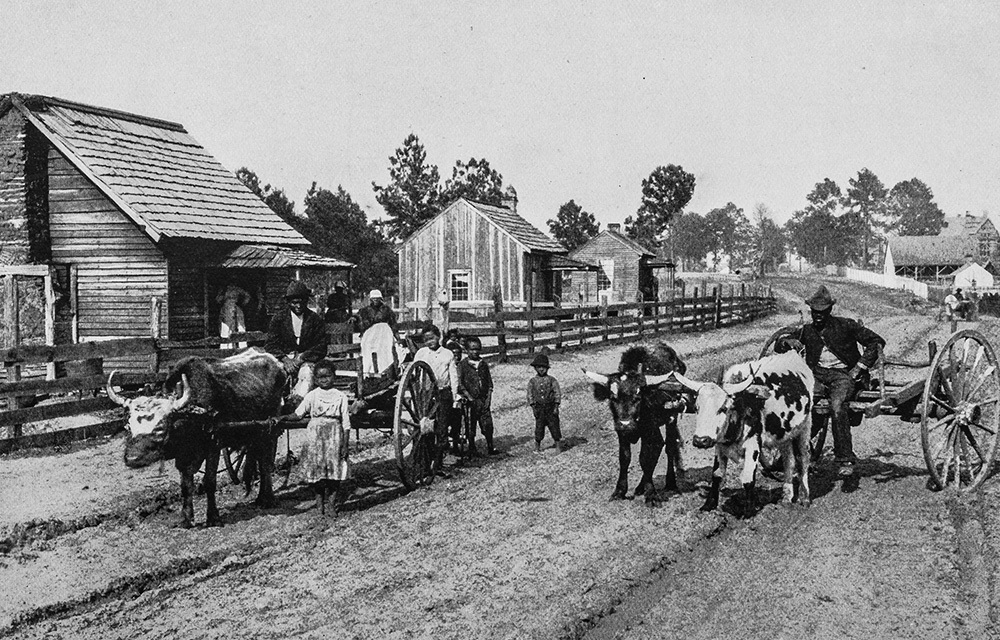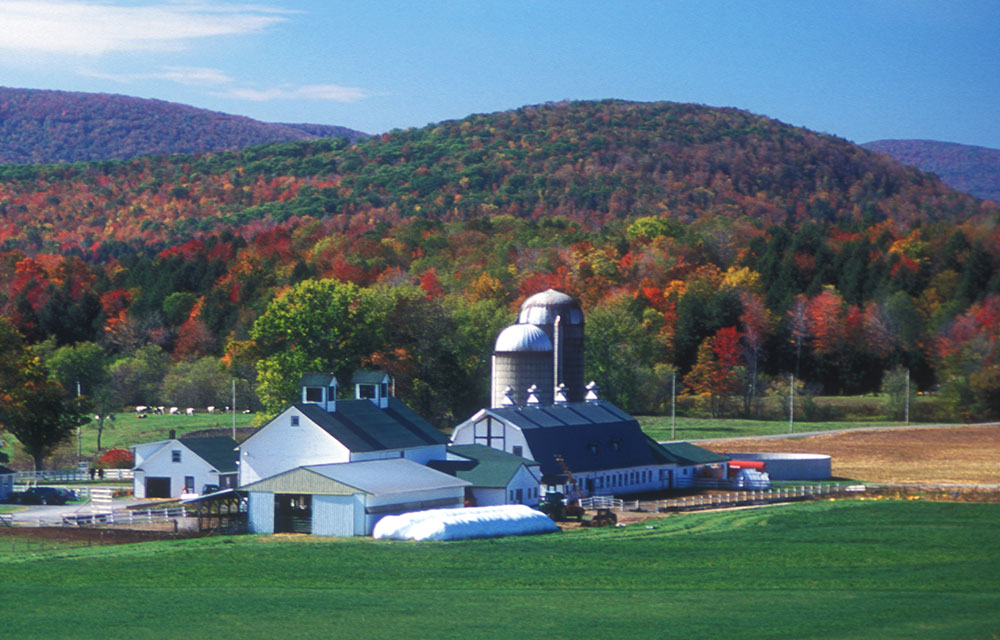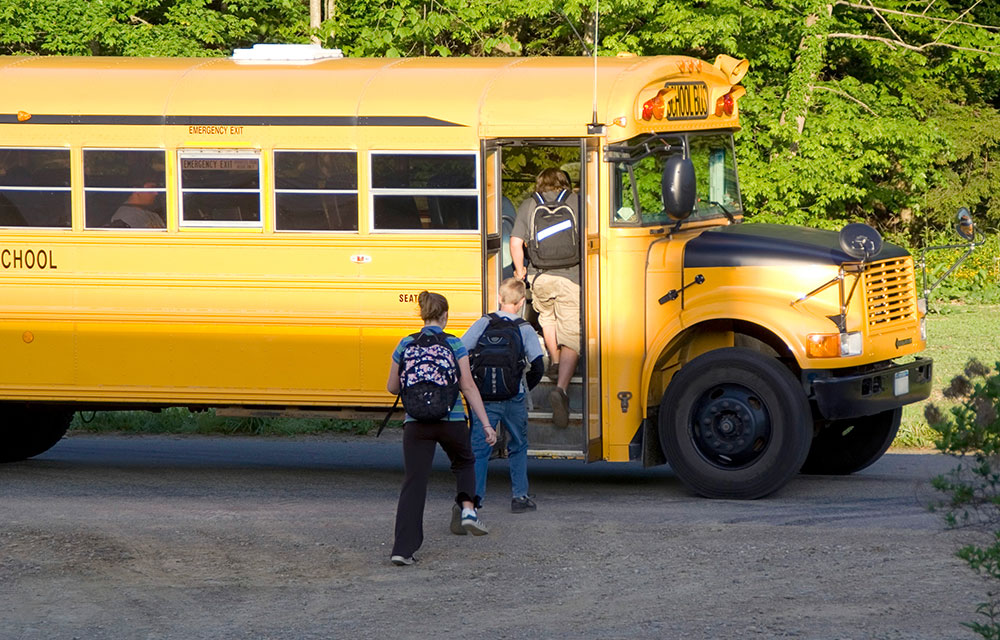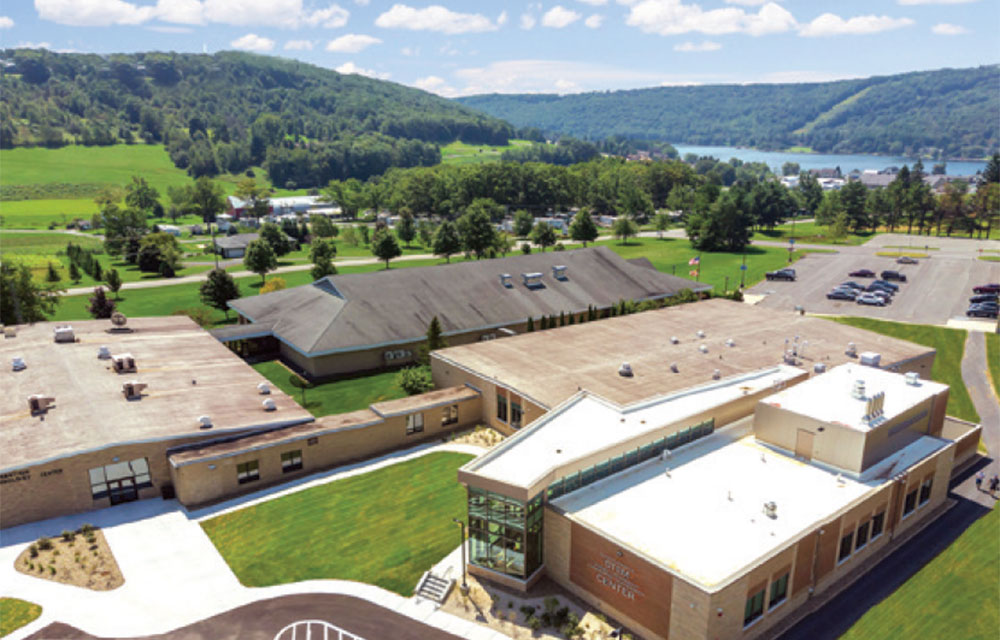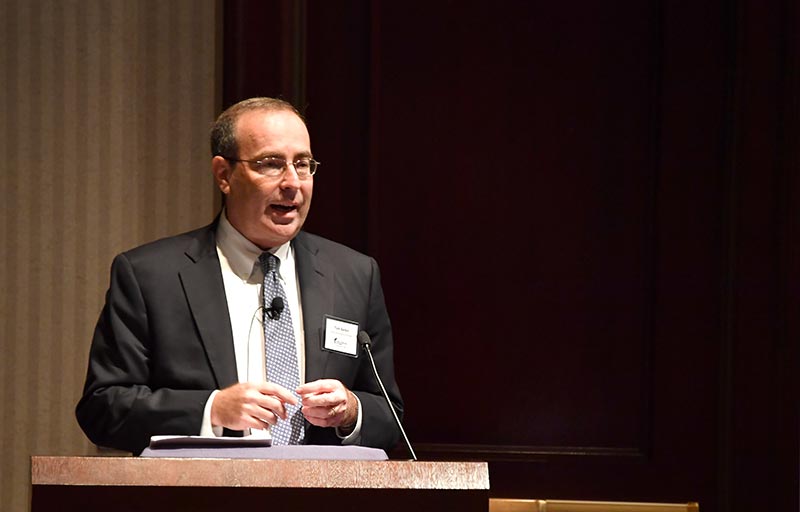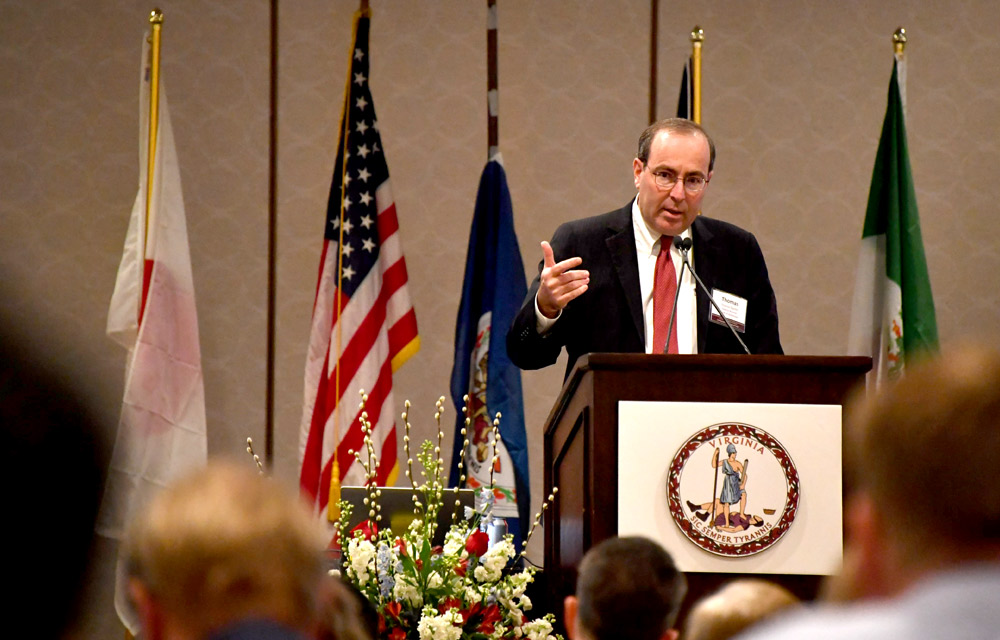Since Hurricane Helene made landfall in September 2024, Riverbird Research of the Asheville Area Chamber of Commerce found through its surveys that while recovery gained momentum, businesses face ongoing challenges.
Small Town and Rural Communities
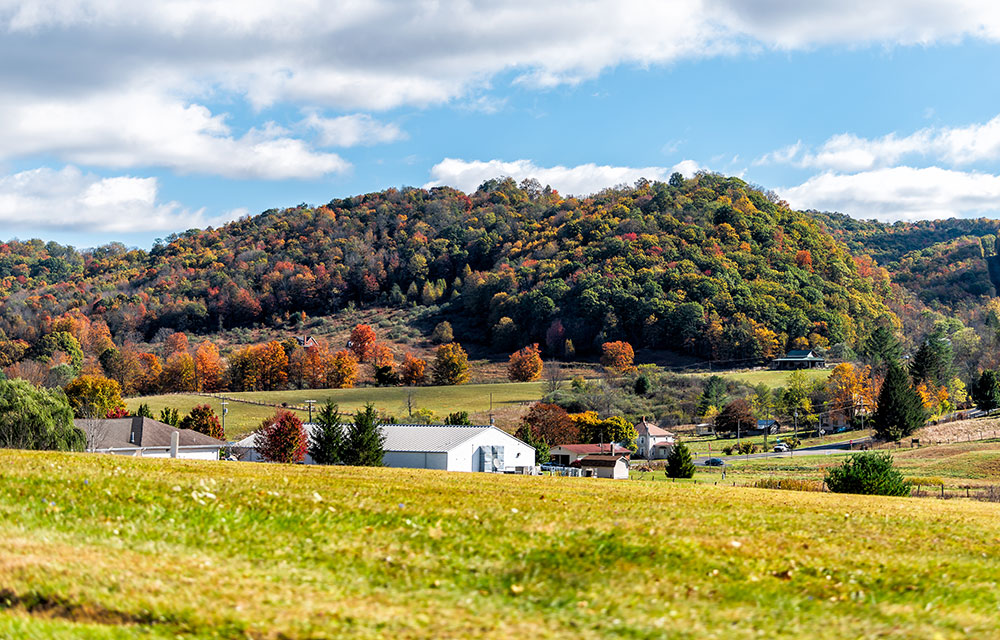
Explore our research into the unique challenges and opportunities that face small towns and rural areas.
 Updating Results
Updating Results
Topics include STEM education for the rural workforce, insights form the 2025 CDFI Survey, assessing business conditions for manufacturers, and more.
Small farmers are important producers in Virginia's agriculture industry, but they face mounting costs and uncertain revenue. What keeps them going?
Erika Bell and Hunter Jones describe the importance of the Federal Reserve Bank of Richmond connecting with small towns and rural communities throughout the Fifth District, including those in western North Carolina recovering from Hurricane Helene. Bell is a community development regional manager and Hunter is a senior business analyst. In addition, Russ Harris of the Southwestern Commission Council of Governments and Nathan Ramsey of the Land of Sky Regional Council reflect on the value of their partnerships with the Richmond Fed and other regional organizations, both before and after the hurricane.
In January, twenty-five community leaders from across the Fifth District will embark on training as part of the 2026 cohort of the Community Investment Training program, an opportunity offered through the Federal Reserve Bank of Richmond’s Rural Investment Collaborative.
Many rural areas lack sufficient resources to strengthen the STEM pipeline. How is one nonprofit in South Carolina addressing the workforce gap in hopes of reducing rural flight?
Bethany Greene
Regional Economist
Daniel Davis talks about the importance of understanding the economies of small towns and rural areas. He also discusses the work that the Federal Reserve Bank of Richmond has done to examine these economies and connect with community leaders, including the recent launch of the Richmond Fed's Center for Rural Economies and Investing in Rural America webinar series. Davis is group vice president for regional economics at the Richmond Fed and director of the center.
This post explores the experiences of rural CDFIs using data from the most recent CDFI Survey, including funding challenges and reliance on federal funding.
Bethany Greene describes the flow of federal funds into Fifth District communities as transfer payments, from health care and Social Security benefits to unemployment insurance payments. In particular, she discusses regional variances in communities' reliance on this funding, especially in rural areas. Greene is a regional economist at the Charlotte branch of the Federal Reserve Bank of Richmond.
Mary Donnan and Victor Farmer discuss two projects in the Fifth District that illustrate the challenges of economic development in rural communities and the importance of philanthropic organizations in addressing those challenges. They also reflect on how the Richmond Fed's Community Investment Training program, whose core curriculum is provided by Invest Appalachia, helped move the projects forward. Donnan is executive director of the Alleghany Foundation and Farmer is director of the Boone Memorial Health Community Foundation.
Some rural counties that have experienced long-term decline have started growing in recent years. What do these counties have in common, and is there a formula for success?
Joseph Mengedoth
Regional Economist
In recent years, some small towns that were losing population have started growing again. What do they have in common?
Tom Barkin
President and Chief Executive Officer
Conversations with business and community leaders can shed light on the economy when data lag.
At the Richmond Fed's sixth annual Investing in Rural America Conference, three communities in Virginia and North Carolina shared how they have used on-demand microtransit to address the lack of public transportation options that create barriers for residents without cars.
Applications are now being accepted for the 2026 Community Investment Training program, a 16-week opportunity offered through the Federal Reserve Bank of Richmond’s Rural Investment Collaborative.
Situated between the beaches and the mountains of North Carolina, Robeson County is the largest county in the state by land area. Nearby Scotland County is named in honor of the Scottish settlers who occupied the area in the 1700s. Both counties are known for their beautiful natural resources and historical sites. Our Community Conversations team visited the region to learn more about how the local business and tribal communities are working to improve opportunity for their counties.
Many Fifth District communities rely on government transfer payments for a sizable share of personal income, but the amount varies, particularly between rural and urban areas.
Bethany Greene
Regional Economist
At the Richmond Fed's sixth annual Investing in Rural America Conference, child care providers and experts shared the challenges of providing affordable, quality early care and education in rural communities, as well as solutions they have developed.
Understanding the place-based economics of rural areas is crucial for identifying the challenges they face and potential opportunities for economic growth in each community.
Anna Kovner
Executive Vice President and Director of Research
The Community Investment Training helps rural leaders jump-start development projects, and based on the 2024 and 2025 cohorts, the Richmond Fed's community development team shares some lessons learned.
Nearly 300 community leaders gathered in Roanoke, Va. for the 2025 Investing in Rural America Conference, to learn, connect and discuss strategies for solving issues affecting our small towns and rural communities – like child care access, the skills gap, and housing shortages.
Although the U.S. has been graying, populations in many rural counties have actually grown younger over the last several years. What could this mean for rural economies?
Joseph Mengedoth provides an overview of the economic contributions of agriculture in the rural parts of the Fifth District. Mengedoth is a regional economist at the Federal Reserve Bank of Richmond.
President Tom Barkin discusses the hurdles to and potential for growth in rural communities.
Tom Barkin
President, Federal Reserve Bank of Richmond
As part of the Richmond Fed’s focus on supporting small town and rural communities, we will host the sixth annual Investing in Rural America Conference on May 20‒21, 2025. This year’s conference theme is Elevating What Works, during which we will spotlight the strategies and solutions that bolster economic and social vitality in rural communities — embracing empowerment, working together and leveraging assets.
A look at where USDA Rural Development funding goes across the Fifth District. Which programs drive total investments, and which states and counties get the largest shares of funding?
Data from the Small Business Credit Survey show key differences between rural and urban small businesses, particularly around firm age, ability to access credit, and reliance on small banks.
Rural businesses were more likely to expect significant impacts from tariffs than their urban counterparts but were less likely to report those impacts would be negative.
Jason Kosakow
Survey Director
Rural free delivery of mail changed daily life for millions of rural Americans, reducing their isolation and strengthening their connection to the broader economy.
Farms in the Fifth District produce necessary commodities like pork, chicken, soybeans, peanuts, and cotton. That production largely occurs in rural areas, creating value and employment opportunities in those communities.
Joseph Mengedoth
Regional Economist
Emily Corcoran and Jen Giovannitti discuss the demand and supply factors that influence the financing of community development in rural areas, as well as the issues that impede the flow of capital into the places that need it. Corcoran is a senior manager of regional and community analysis at the Federal Reserve Bank of Richmond and Giovannitti is president of the Claude Worthington Benedum Foundation.
In a follow-up to a past Regional Matters post that focused on Maryland and Virginia, this post explores heirs' property in other Fifth District states, including the challenges, risks, and potential resolutions.
Nestled in the Piedmont region of North Carolina, Randolph and Chatham counties offer a blend of rural charm and scenic beauty. Recently, the construction of several large-scale manufacturing plants are reshaping the local economy and providing new opportunities for growth.
Hurricanes Helene and Milton have put a spotlight on both the immediate and long-term aftermath of such storms.
Rural communities can face a mismatch between supply of and demand for community development investment dollars. But through partnerships with local government, nonprofits, businesses, and CDFIs, some are developing creative solutions.
Emily Wavering Corcoran and Jen Giovannitti
Philanthropic giving can make a big difference in small towns, if both sides can find each other.
Rural communities appear to face higher unemployment rates and grapple with economic challenges that are distinct from their urban neighbors.
John O'Trakoun
Senior Policy Economist
Telehealth offers a potential opportunity to support health care access in rural communities, but the digital divide in access to broadband and devices shows that these underserved communities face lower access to health care.
Just 75 minutes from Richmond, Farmville and its surrounding counties are an idyllic setting for bargain hunters and outdoor adventurers alike. The area's economic landscape is notably shaped by its educational institutions and agricultural roots, alongside other attractions. Recently, our Community Conversations Team made a visit to the area to learn more about their economic strengths and opportunities.
The Richmond Fed has been closely studying the housing sector, with a focus on small towns and rural communities. What obstacles does the region face and what role can the Richmond Fed serve?
Rural areas were hit hard with labor shortages during COVID-19, more so than their urban counterparts. However, the tides have turned with rural wage growth now exceeding that of urban areas.
What do commuting patterns look like for Fifth District counties, and what do they tell us about a county's residents?
Jason Smith, senior community development advisor at the Richmond Fed, discussed the results of the first round of the Bank's Community Investment Training, which helps rural communities obtain funding for their economic and community development projects. He also shared his interview with one of the program's participants, Craig Sewell of the Southern Maryland Agricultural Development Commission.
Applications are now being accepted for the 2025 Community Investment Training program, a 16-week opportunity offered through the Federal Reserve Bank of Richmond’s Rural Investment Collaborative.
This paper provides evidence on the regional resiliency impact of research universities by estimating the effects of recent U.S. recessions on local unemployment.
This post explores how changes in total population, out-of-the-labor-force population, and unemployment explain employment growth across the Fifth District's rural counties.
Adam Scavette
Regional Economist
Host Tim Sablik shares some of the key insights from community development experts at the Richmond Fed's fifth annual Investing in Rural America Conference. The event was held in Roanoke, Va., in May 2024.
Building relationships, developing the next generation of leaders and innovation. These were among the takeaways recently shared by panelists and presenters at the Federal Reserve Bank of Richmond’s fifth annual Investing in Rural America Conference, which took place in Roanoke, Virginia, and showcased the efforts of stakeholders to build strong partnerships, develop innovative programs that address community needs, and educate and retain a talented workforce in their small towns and rural communities.
In April, President Tom Barkin, Regional Executive Matt Martin and Regional Economist Laura Ullrich met with local community and business leaders in North Carolina's Surry and Yadkin counties to gain a fuller understanding of the economic strengths and opportunities facing the region as part of the Bank's Community Conversations program.
The Richmond Fed’s Community Investment Council convened to share insights centered around our Bank’s community development goals for our region and to discuss some of the issues that impact the work including the labor market and current economic conditions of households and communities. Leaders representing all states within the Fifth District met at the Richmond location.
Over half of the rural counties that experienced population growth between 2020 and 2023 did so after seeing population declines in the prior decade, and that growth came largely from domestic migration.
Joseph Mengedoth
Regional Economist
Some rural and small-town communities see potential for outdoor recreation to reinvigorate their economies.
The Rural Investment Collaborative aims to increase economic investment in small towns and rural communities throughout the Fifth District by providing investment training and improving access to capital.
Following the release of the 2023 Rural-Urban Continuum Codes, many counties in the Fifth District have become more rural. What caused these changes, and how does this affect the way we think about rural?
Hailey Phelps
From quaint storefronts offering a variety of gourmet peanuts to sprawling farms where generations have perfected their craft, this area has solidified its spot as an important part of Virginia’s agricultural economy thanks to its continued commitment to one of America’s favorite legumes. But as our Community Conversations team learned on a recent trip to Southeastern Virginia, the pull between maintaining a rural, small town feel and embracing the potential benefits of urbanization hangs in the balance.
Western North Carolina is known for stunning mountain views, the eclectic tourist hotspot Asheville, and the opulent former residency of the Vanderbilts, the Biltmore Estate. But, as our Community Conversations team learned as they traveled an hour west of Asheville to places like Jackson County and the Qualla Boundary, Western North Carolina is also home to a strong sense of community, resiliency and innovation.
Workforce development was a major topic of conversation when Matt Martin and Erika Bell recently met with business and community leaders in Pickens County and Oconee County, South Carolina. In this episode, Martin and Bell discussed what they learned during their visit. Two local workforce development leaders — Jeromy Arnett and Ray Farley of Alliance Pickens — also shared their stories.
The Richmond Fed's Rural Investment Collaborative will train 20 rural leaders how to create successful proposals for community funding.
Efforts such as subsidizing public transportation, providing access to auto loans, and limiting driver's license suspension laws could help address employment barriers for low-income and rural individuals.
Joseph Mengedoth
Regional Economist
Rental housing has become less affordable across the country, but rural markets face additional difficulties.
Proposal submissions are now open for the 2024 Investing in Rural America Conference poster session! In this post, we invite you on a virtual tour of posters from our 2023 conference to learn about the ways rural communities are addressing economic challenges.
Nicholas Haltom and Stephanie Norris
Upcoming Event: The general public is invited to join the Richmond Fed on Wednesday, Nov. 15 for an enlightening conversation on the evolving role community colleges play in workforce development. Registration required.
Jarrod Elwell and Jason Smith share what the Federal Reserve Bank of Richmond has learned about the financing needs of rural parts of the Fifth District and how the Bank's Rural Investment Collaborative and other programs help community leaders address those needs.
Andy Bauer and Danny Twilley discuss the research they are doing to better understand gaps in the housing markets of rural communities and small towns and the unique challenges they face in addressing these gaps. Bauer is vice president and regional executive for the Baltimore branch of the Federal Reserve Bank of Richmond. Twilley is assistant vice president of economic, community and asset development for the Brad and Alys Smith Outdoor Economic Development Collaborative at West Virginia University.
In addition to differences in housing affordability, rural Fifth District households experience differences in housing quality by tenure and income.
While the recent decline in rural homeownership affordability has challenged prospective buyers, many existing rural homeowners and renters are also burdened by their housing costs.
Now that the pandemic has tightened the labor market further, smaller communities are going to have to figure out how to put their best foot forward.
Tom Barkin
President and Chief Executive Officer
The rise and fall of Gary, W.Va — and that of company towns across the country — mirrors the arc of the nation's economy.
Aayush Singh
A unique partnership between Compass Point Preschool and Northeastern Technical College in Cheraw, South Carolina, makes affordable, high-quality child care accessible to parents entering the labor force.
Changes to the urban area criteria used for the 2020 census data have resulted in shifts in the rural-urban population distribution in parts of the Fifth District.
Stephanie Norris
Associate Director, Community College Initiative
Anita Brown-Graham describes the key components of lasting development in rural communities. She shared these insights in her keynote at the Richmond Fed's Investing in Rural America conference in April 2023.
Since becoming President of the Richmond Fed in 2018, Tom Barkin has made spending time throughout the Fifth District his goal. One of the ways the Richmond Fed's research department supports this goal is through an event series known as Community Conversations.
Carroll County, Virginia, worked closely with Virginia Housing and developer Landmark Asset Services, Inc. to repurpose the county's old high school building into affordable rental housing.
Richmond Fed Community Development leader Jason Smith co-chairs a national group of Federal Reserve leaders focused on understanding rural communities.
President Tom Barkin shares how small towns in the Fifth District are putting their best foot forward to attract talent.
Tom Barkin
President, Federal Reserve Bank of Richmond
Santiago Pinto discusses his research on commuting patterns in the Fifth District and how these patterns may help us better understand the economic connections between rural and urban communities. Pinto is a senior economist and policy advisor at the Federal Reserve Bank of Richmond.
$440 million in competitive economic development grants from the 2021 American Rescue Plan Act have arrived in the Fifth District where the funds are expected to have an outsized impact in rural areas.
President Tom Barkin shares how engagements with the Fifth District community inform our understanding of the economy.
Tom Barkin
President, Federal Reserve Bank of Richmond
Examining commuting behavior helps show how connected counties are in the Fifth Federal Reserve District.
After accounting for cost of living, teachers' salaries go further in some rural communities throughout the Fifth District.
States and communities are looking for remote workers as sources of economic growth. Is offering them cash and other perks a promising model of economic development?
We're building our data products to help data users and local and state leaders gain quick insight into geographic differences across a range of indicators.
Nicholas Haltom
Senior Manager
Sierra Latham and Stephanie Norris discuss the challenges of collecting socioeconomic data on small towns and rural areas, how data analysts address them, and the value of that work in analyzing and improving the Richmond Fed's understanding of these communities.
The New River Valley Regional Commission is an example of how a regional development organization can galvanize innovative, sustainable regional and local housing strategies to serve its small towns and rural communities.
Sierra Stoney and Tiffany Hollin-Wright
Nicolas Morales reviews his research on the economic role of non-native workers in rural areas. Morales is an economist at the Richmond Fed.
Since the onset of the COVID-19 pandemic, have people moved away from urban cores in favor of more rural areas?
Hailey Phelps
Small towns have an opportunity to address challenges from health care to transportation, but there are barriers to accessing funding.
Tom Barkin
President and Chief Executive Officer
The Appalachian Regional Commission, created in the 1960s, became a model for regional economic development programs.
Numerous factors — including population growth, education, housing, transportation, child care, health, and broadband availability — are shaping the differences in employment outcomes between rural and urban communities.
When immigration is restricted in rural areas, native workers don't seem to fill the jobs left empty.
Host Tim Sablik discusses his recent research on the value of entrepreneurs in the economic growth of rural places and small towns, as well as the obstacles that they face compared to more urban communities. Sablik also talks with Erika Bell and Laura Ullrich about what they have learned from their contacts in North Carolina and South Carolina about rural entrepreneurship. Bell is community development regional manager for the Carolinas and Ullrich is a regional economist in the Richmond Fed's Charlotte branch.
Housing and transportation represent the two largest living expenses in most households, but local investment can address households' travel needs.
Although U.S. employment in manufacturing has decreased since the 1980s, the industry has become a vital employer in rural areas, where it pays above-average wages.
Adam Scavette
Regional Economist
A recent analysis shows significantly higher inflation in rural areas versus urban areas, using data from nine broad census divisions. But does this difference in price levels hold true drilling down to the state level?
Aubrey George and John O'Trakoun
President Tom Barkin discusses pools of funding available to small towns, the barriers these communities face in accessing funding, and explores potential solutions to these barriers.
Tom Barkin
President, Federal Reserve Bank of Richmond
Intermediary organizations, including anchor institutions, rural development hubs, and collective impact backbone organizations, play an important role in rural capacity building.
Jason W. Smith
Rural Investment Collaborative Director
Sierra Latham and Peter Dolkart discuss their work on the availability of affordable housing in small towns and rural communities. Latham is a senior research analyst at the Federal Reserve Bank of Richmond and Dolkart is a community development regional manager based in the Richmond Fed's Baltimore office.
President Tom Barkin discusses critical investments to support rural economic development.
Tom Barkin
President, Federal Reserve Bank of Richmond
The rural areas and small towns that are succeeding have several key elements: a story, regional cooperation, and dedicated funding — tied together by something harder to define.
Tom Barkin
President and Chief Executive Officer
Although people often associate high housing costs with urban areas, many households in rural areas also struggle with costly housing
As a regional Fed, it is in our mission to help wherever we can to promote economic vitality in our District. So, starting in early 2018, the Richmond Fed stepped up its efforts to learn about rural and small-town economies and to seek ways in which outcomes could be improved and potential unleashed.
The pandemic has worsened a long-standing national shortage of nurses. Rural communities face the greatest challenges.
Entrepreneurship creates many local benefits, but starting a new business in rural places can be challenging
Tressa Gardner provides an overview of the Southeastern Institute of Manufacturing and Technology (SiMT), the business incubator and other programs that it operates, and its role in supporting economic development in northeastern South Carolina. Gardner is associate vice president of SiMT.
The GoodCare Program in Virginia helps aspiring workers complete career pathways in health care, addressing workforce shortages in a sector essential to equitable pandemic recovery.
Tiffany Hollin-Wright and Jessica King
Mary Ann Gilmer of Goodwill Industries of the Valleys discusses the nonprofit's training program for healthcare workers and the importance of this work in rural communities, especially during the COVID-19 pandemic. Gilmer is chief strategy and people officer at Goodwill.
Tom Barkin, president of the Federal Reserve Bank of Richmond, discusses the challenges and opportunities facing rural communities and smaller towns, and why the Richmond Fed has been working to address them.
Rural America Week brings together community leaders, policymakers, and representatives from financial institutions and foundations.
According to the latest census data, the share of Americans living in rural areas continued to decline over the past decade, while urban areas have grown.
Hailey Phelps
Daniel Paul Davis and Andrew Dumont discuss an approach to economic development in rural communities that is detailed in a book they have edited, "Investing in Rural Prosperity."
Heirs' property, land passed through generations without a clear title, is an unstable form of landownership that can lead to lost capital and wealth.
The Danville region in Virginia has moved the needle on early childhood education and now has an ecosystem in place to help address future challenges.
Renee Haltom
Vice President and Regional Executive
Angela Wells, executive director of Smart Beginnings Danville Pittsylvania, discusses how her Southside Virginia organization supports parents, schools and early child care providers in preparing children for success in school and in life.
President Tom Barkin shares innovative strategies and success stories from small towns around the Fifth District.
Tom Barkin
President, Federal Reserve Bank of Richmond
Deborah Markley discusses how community foundations support capacity building and development to improve the well being of rural communities.
Focusing on a complete household's needs, Garrett County Community Action Committee's integrated "2Gen approach" links children to high-quality early education and their parents to services that build financial security.
Peter M. Dolkart
Regional Manager
Duane Yoder, executive director of the Garrett County Community Action Committee, discusses how his organization adopted a holistic model for addressing poverty in rural communities.
Community development financial institutions (CDFIs) like Woodlands Community Lenders are uniquely positioned to help rural towns address unique challenges through place-based revitalization and by attracting investment.
Tiffany Hollin-Wright and Surekha Carpenter
Dave Clark discusses the role of Woodlands Development Group and his organization's community development financial institution in driving economic development in north central West Virginia.
Vance-Granville Community College's early college high schools and workforce programs are improving education and job opportunities for area residents.
Laura Dawson Ullrich and Lucas Moyon
Choptank Electric Cooperative on Maryland's Eastern Shore is an example of how many electric cooperatives are providing broadband service in rural communities.
Alexander Marre and Alexander Nikolov
Tim McGaha of Choptank Electric Cooperative offers his perspective on the company's program to bring broadband Internet to rural communities in Maryland.
In our new Rural Spotlight series, we explore solutions to the economic challenges faced by rural communities in the Fifth District.
Stephanie Norris
Associate Director, Community College Initiative
Alex Marré of the Richmond Fed and Anna Read from Pew Charitable Trusts discuss maximizing broadband resources and preview the Broadband Summit on June 8.
Rural black Fifth District communities have long suffered fewer economic opportunities and thus worse economic outcomes.
This article provides some history on the evolution of the Fifth District population across race and the rural-urban continuum since the late 1800s.
Sonya Ravindranath Waddell
Vice President
Alex Marré discusses the ongoing challenges of bringing broadband Internet service to everyone who needs it.
How did rural and urban counties compare on measures of health outcomes and drivers prior to the COVID-19 pandemic?
Stephanie Norris
Associate Director, Community College Initiative
In Reprogramming the American Dream: From Rural America to Silicon Valley: Making AI Serve Us All, Scott sets out a set of general principles for the AI industry.
John Mullin
Digital connections have become more important in a time of social distancing, but rural broadband access still lags behind cities.
John Bailey Jones and Sangeeta Pratap
Research indicates that one promising strategy for rural development is maintaining and improving the quality of an area's public schools.
Alexander Marre, David A. Price and Anil Rupasingha
Although the Fifth District’s black population tends to have higher employment and educational attainment compared to the nation’s, there are still significant disparities relative to whites.
Read President Tom Barkin’s new essay on whether the COVID-19 pandemic could provide an opportunity for small towns to rewrite their endings.
Tom Barkin
President, Federal Reserve Bank of Richmond
Population decline has been a problem for many rural communities, including in the Fifth District. What are the current trends and potential strategies to address it?
During the Great Depression, communities banded together to bring electricity to America's farmland.
What does hospital capacity look like in the Fifth District, and how might rural hospital closings impact the current crisis?
The Crooked Road trail celebrates the cultural history of Appalachian music and arts. In 2015, it was estimated to bring $6.4 million in tourism spending to the region annually and continues to promote growth in southwest Virginia’s tourism industry today.
Roisin McCord
The Crooked Road offers a model of a successful creative economy, one built around cultural assets that revitalized a region both economically and culturally, while offering tourists a unique and authentic experience.
Roisin McCord
Cultural heritage tourists' tastes and methods of communication may be shifting, but destinations are changing to meet them.
Molly Harnish
Alexander Marre and Anil Rupasingha
To study the allocation of workers across cities, we propose and quantify a spatial equilibrium model with multiple industries that employ CNR and alternative (non-CNR) occupations.
Richmond Fed President Tom Barkin discussed economic differences between small towns and urban areas at the Investing in Rural America conference.
Tom Barkin
President, Federal Reserve Bank of Richmond
Why are hospitals in rural areas closing at a higher rate, and what are the consequences for these communities?
Emily Wavering Corcoran
Senior Manager
Richmond Fed President Tom Barkin discussed how entrepreneurship can boost economic growth at the West Virginia Chamber of Commerce 2019 Annual Meeting and Business Summit.
Tom Barkin
President, Federal Reserve Bank of Richmond
A new financing model for distressed communities offers both promise and pitfalls.
Why are hospitals in rural areas closing at a higher rate, and what are the consequences for these communities?
Richmond Fed President Tom Barkin highlighted themes for rural communities — education, jobs, de-isolation, and participation — at the Virginia Governor's Conference on Agricultural Trade.
Tom Barkin
President, Federal Reserve Bank of Richmond
We document that seasonal temperatures have significant and systematic effects on the U.S. economy, both at the aggregate level and across a wide cross section of economic sectors.
Riccardo Colacito and Toan Phan
The Fifth District includes both urban and rural communities. How do we define urban and rural, and what do data tell us about the disparities?
Joseph Mengedoth
Regional Economist
Richmond Fed President Tom Barkin discussed geographic differences between rural and urban areas, workforce development, and mobility at the Reinventing Our Communities conference.
Tom Barkin
President, Federal Reserve Bank of Richmond
Soul City, N.C., was a bold experiment in rural economic development and "Black capitalism" launched by McKissick Enterprises in 1969.
The absence of "boomerang buyers" in the housing market could have implications for near-term economic growth in the United States.
Getting outdoors is healthy for individuals--and maybe for the economy. How large is the economic impact and who measures it?
Lauren Schutjer



